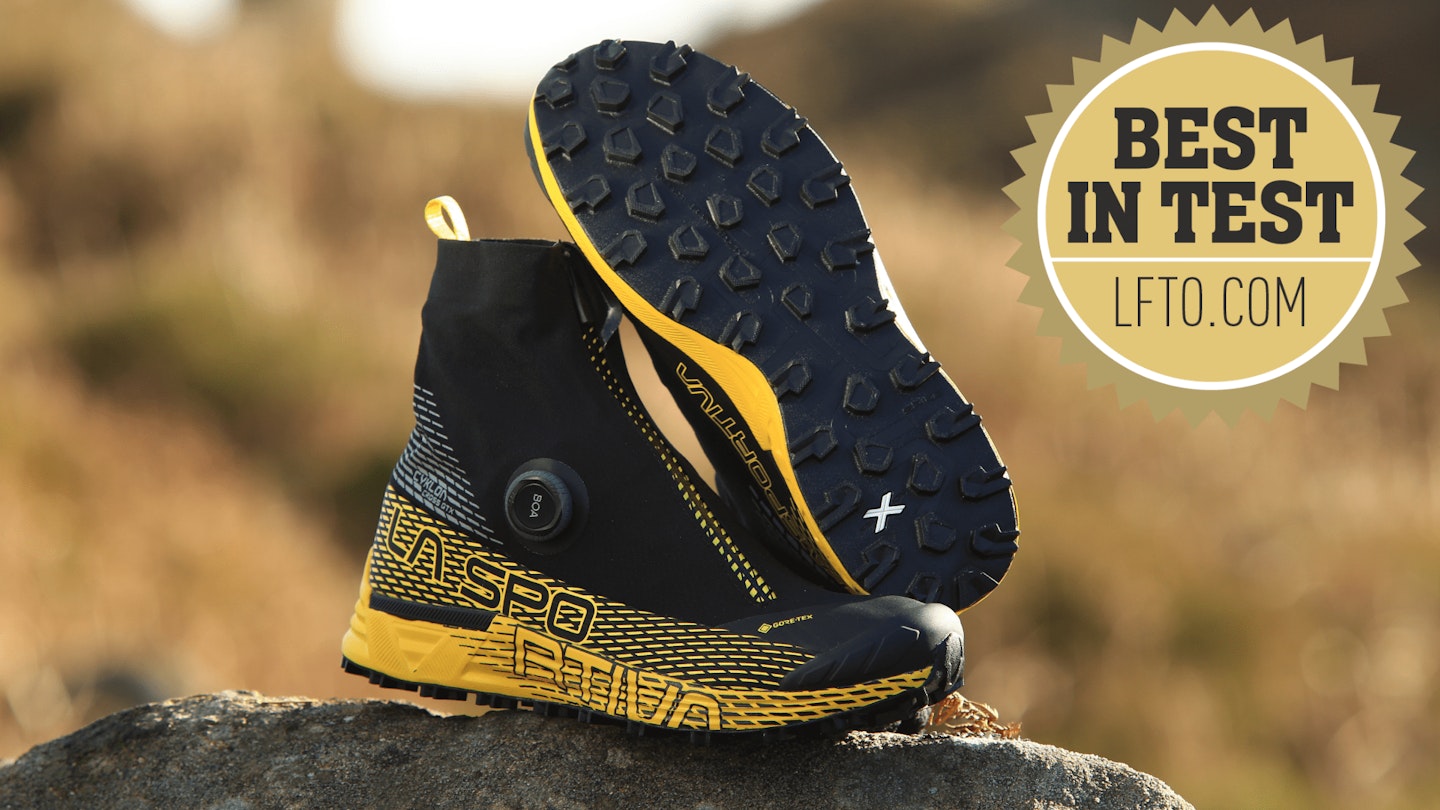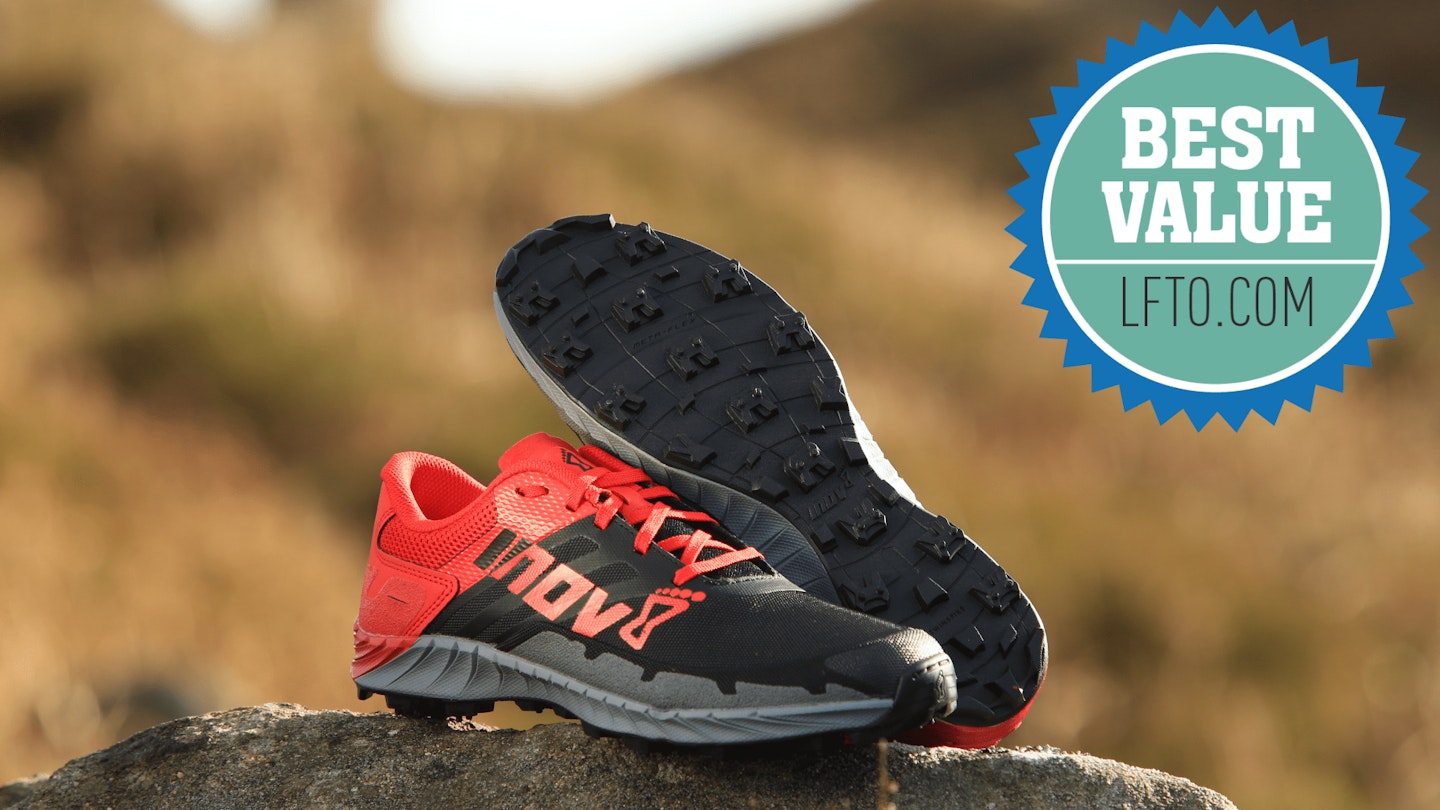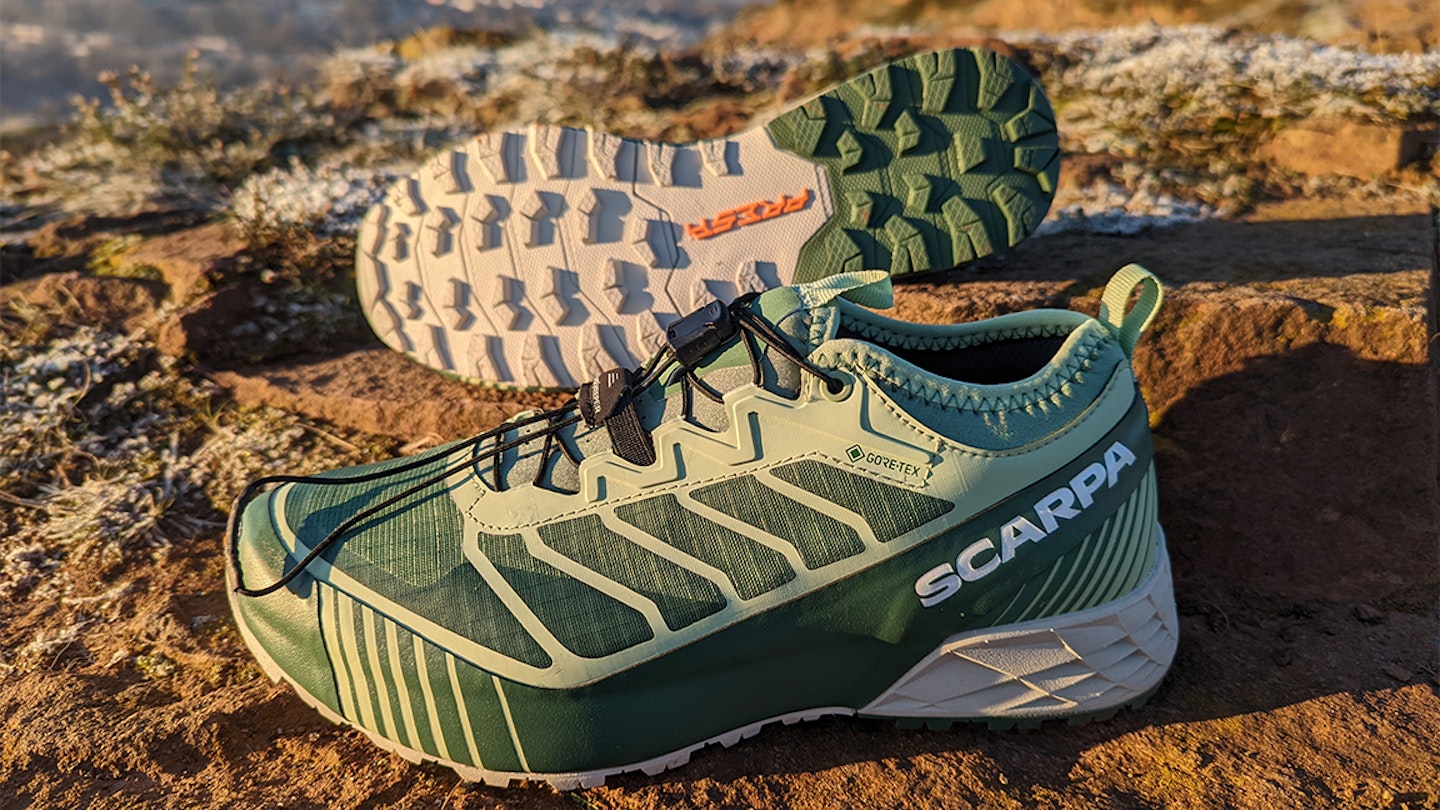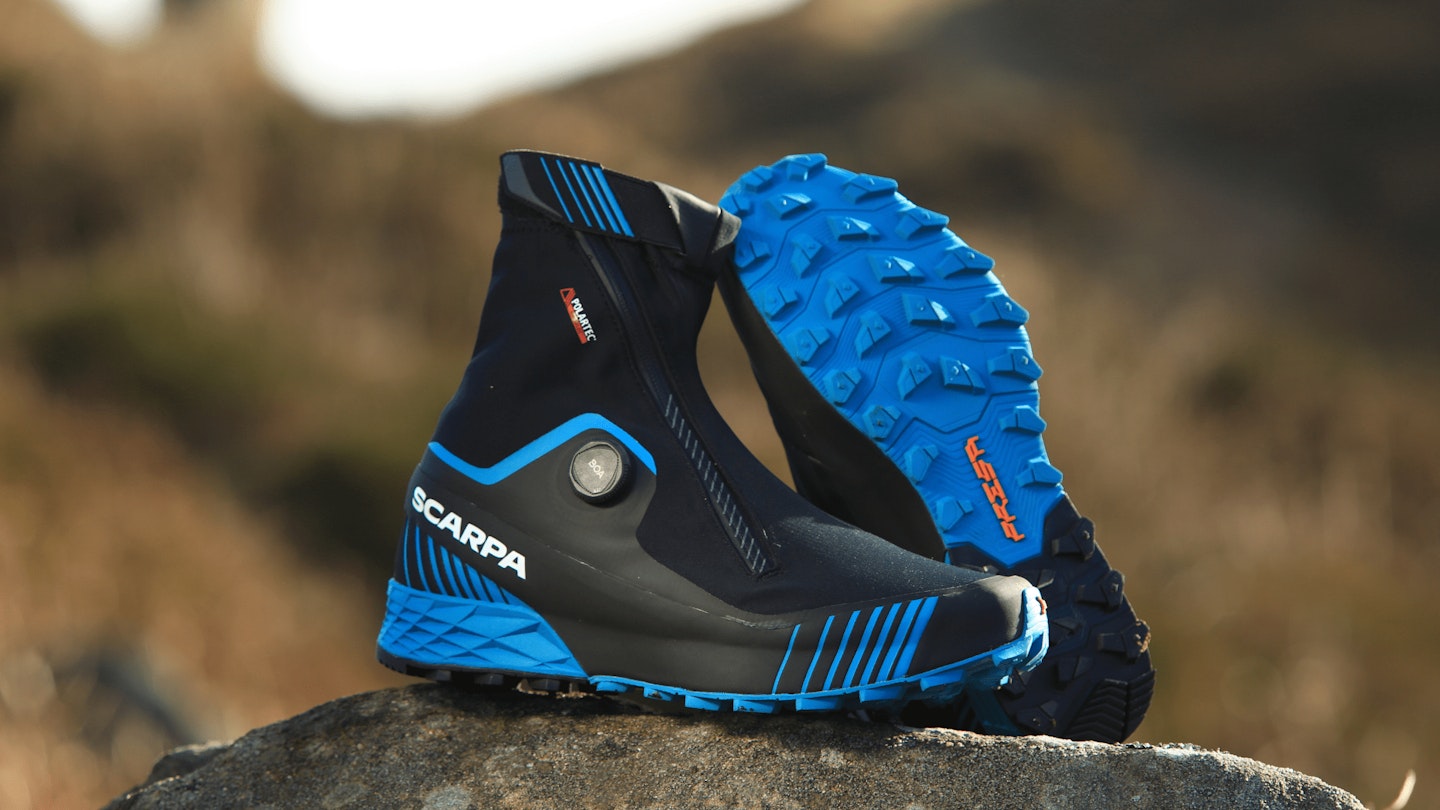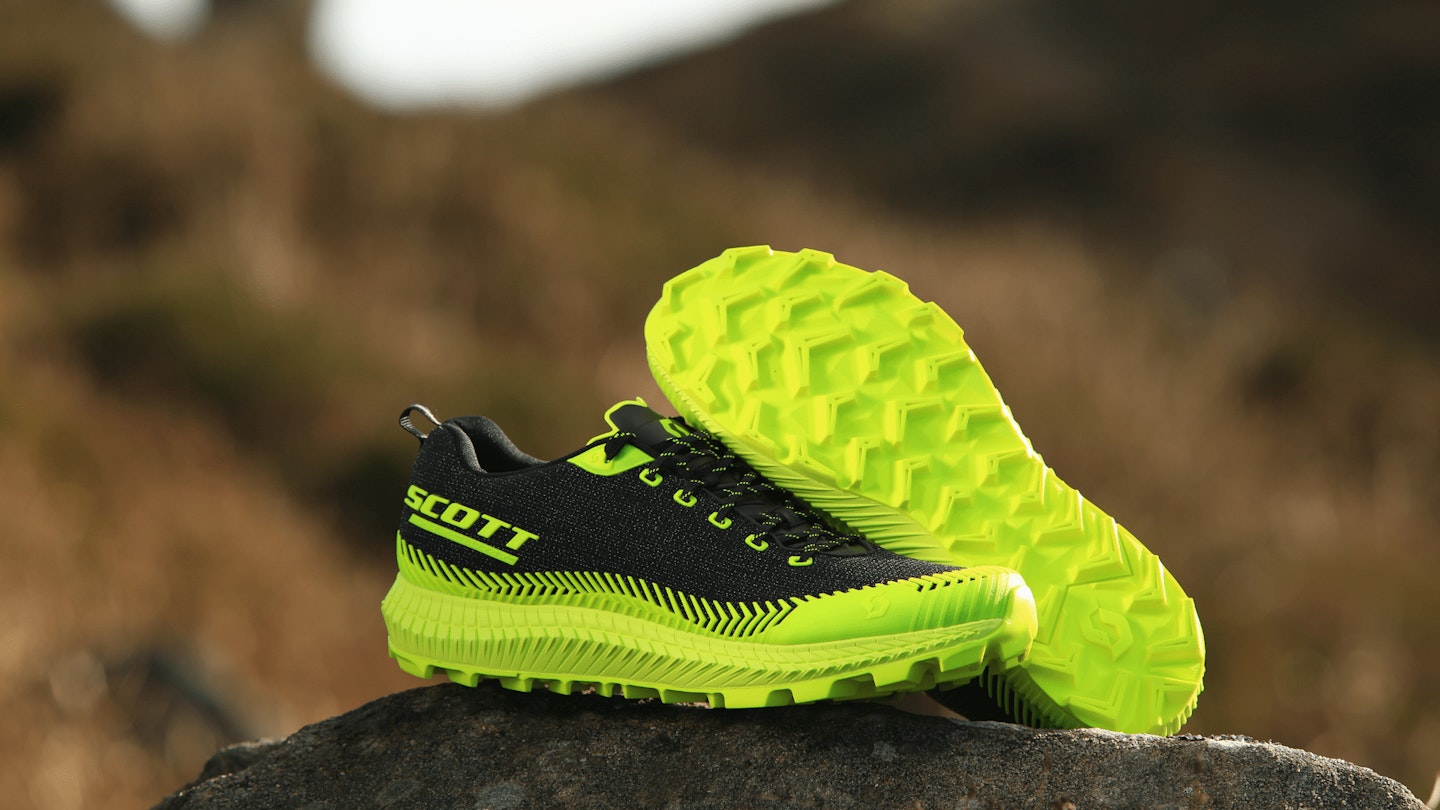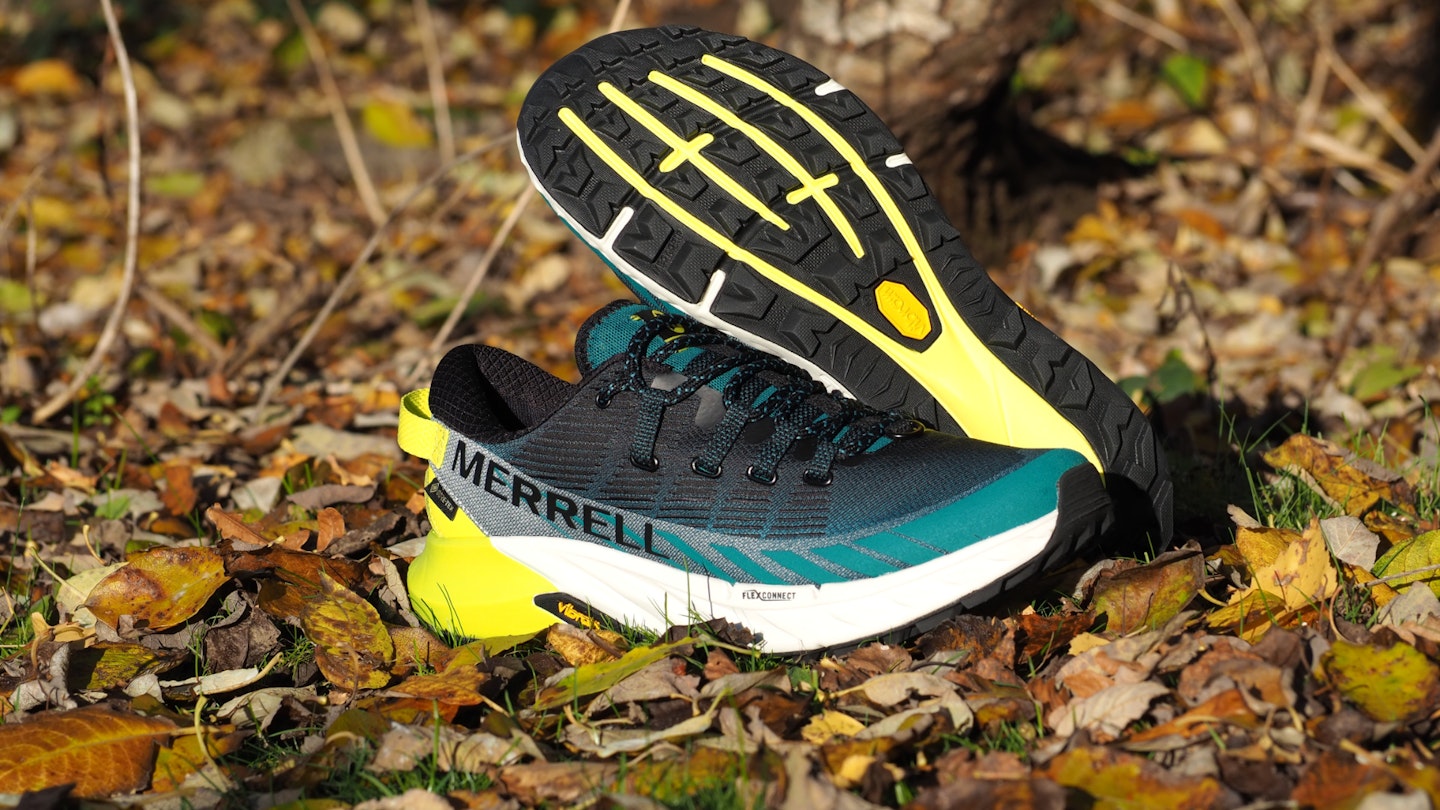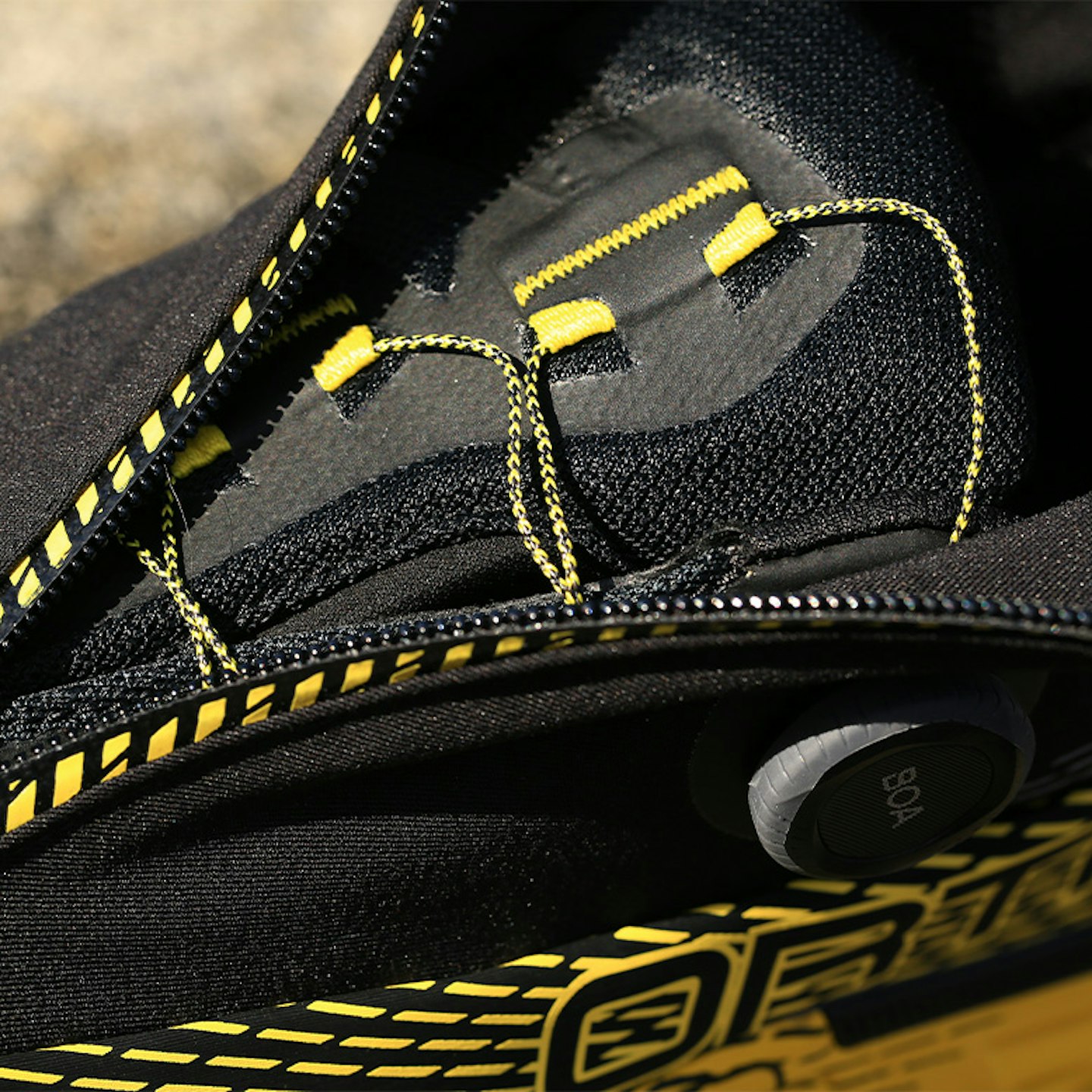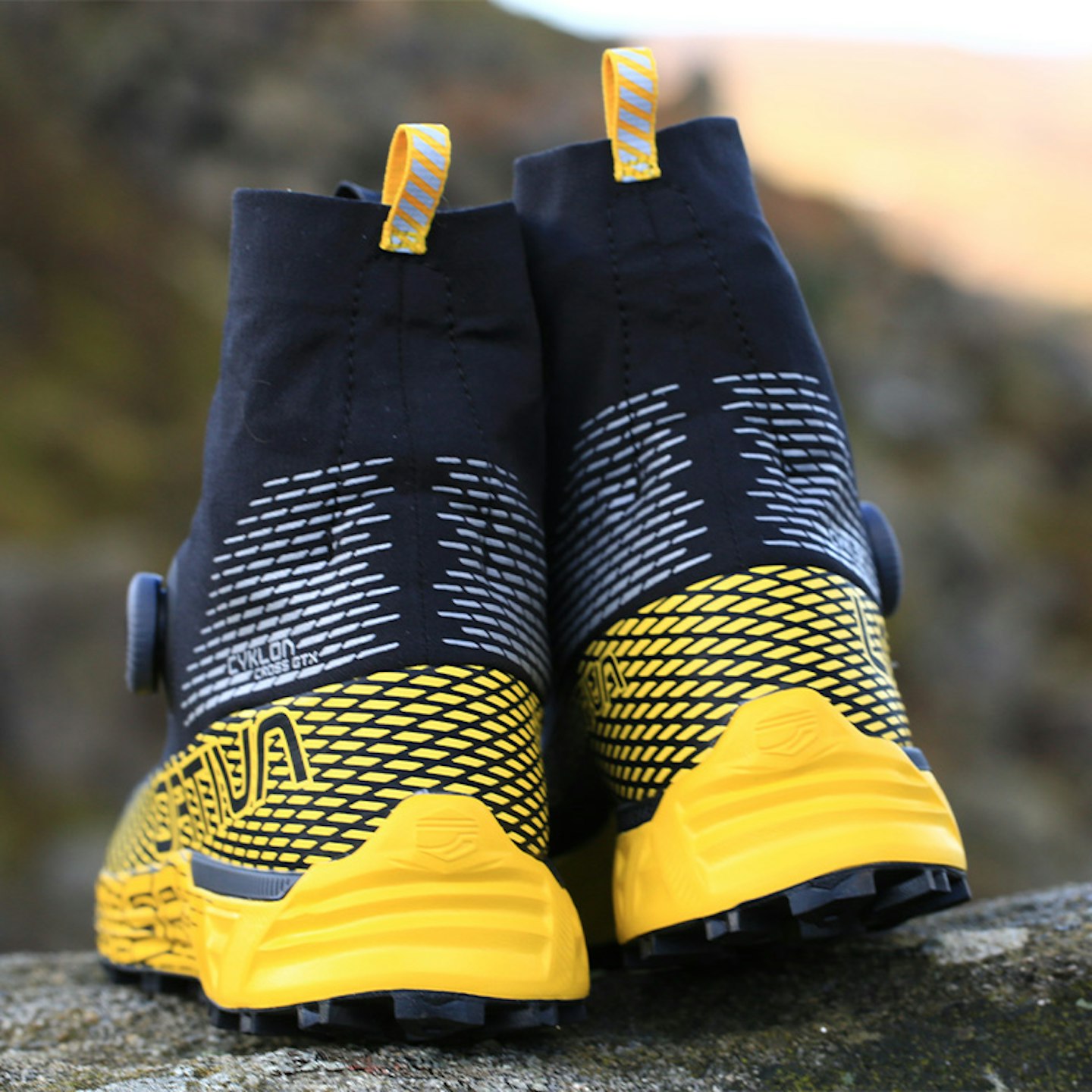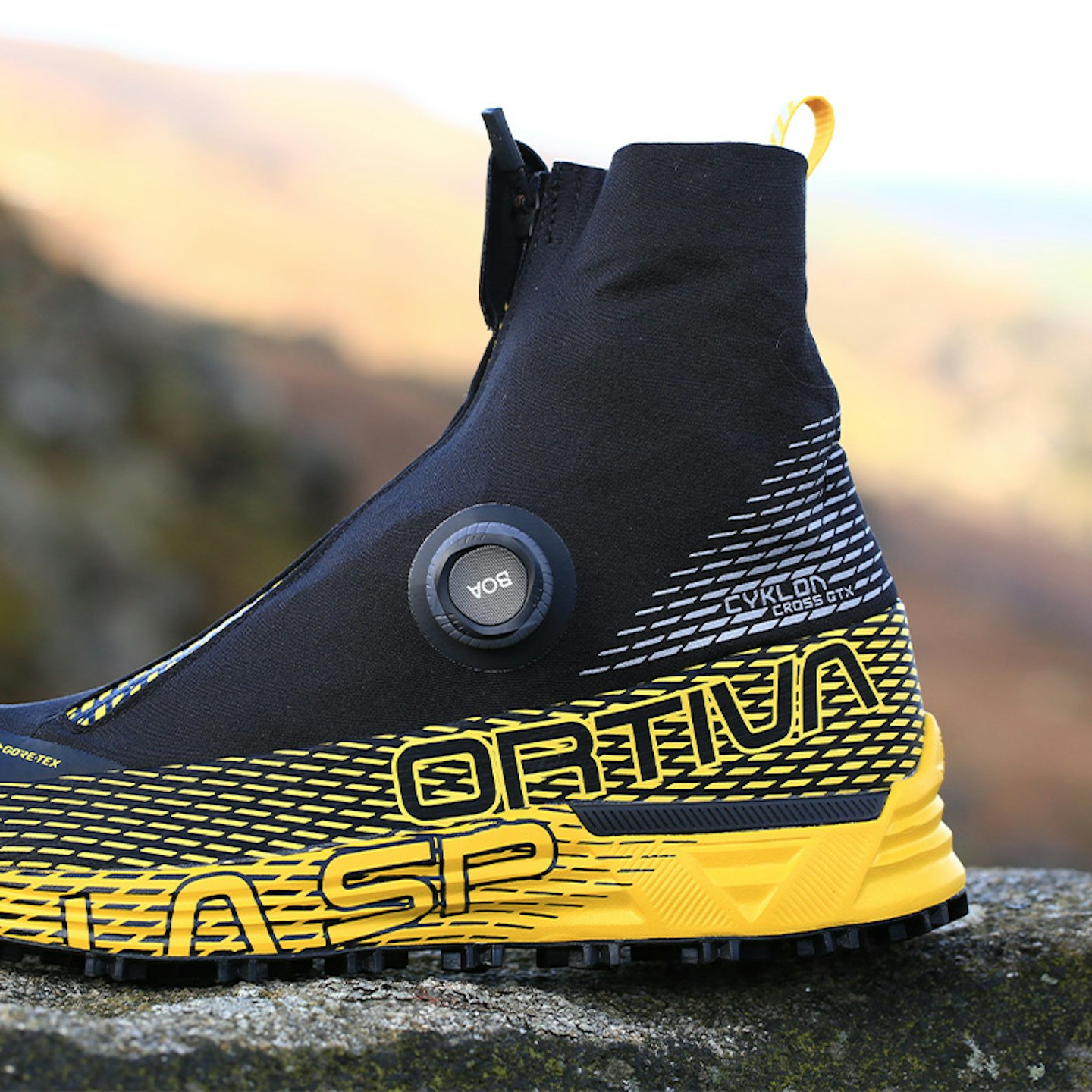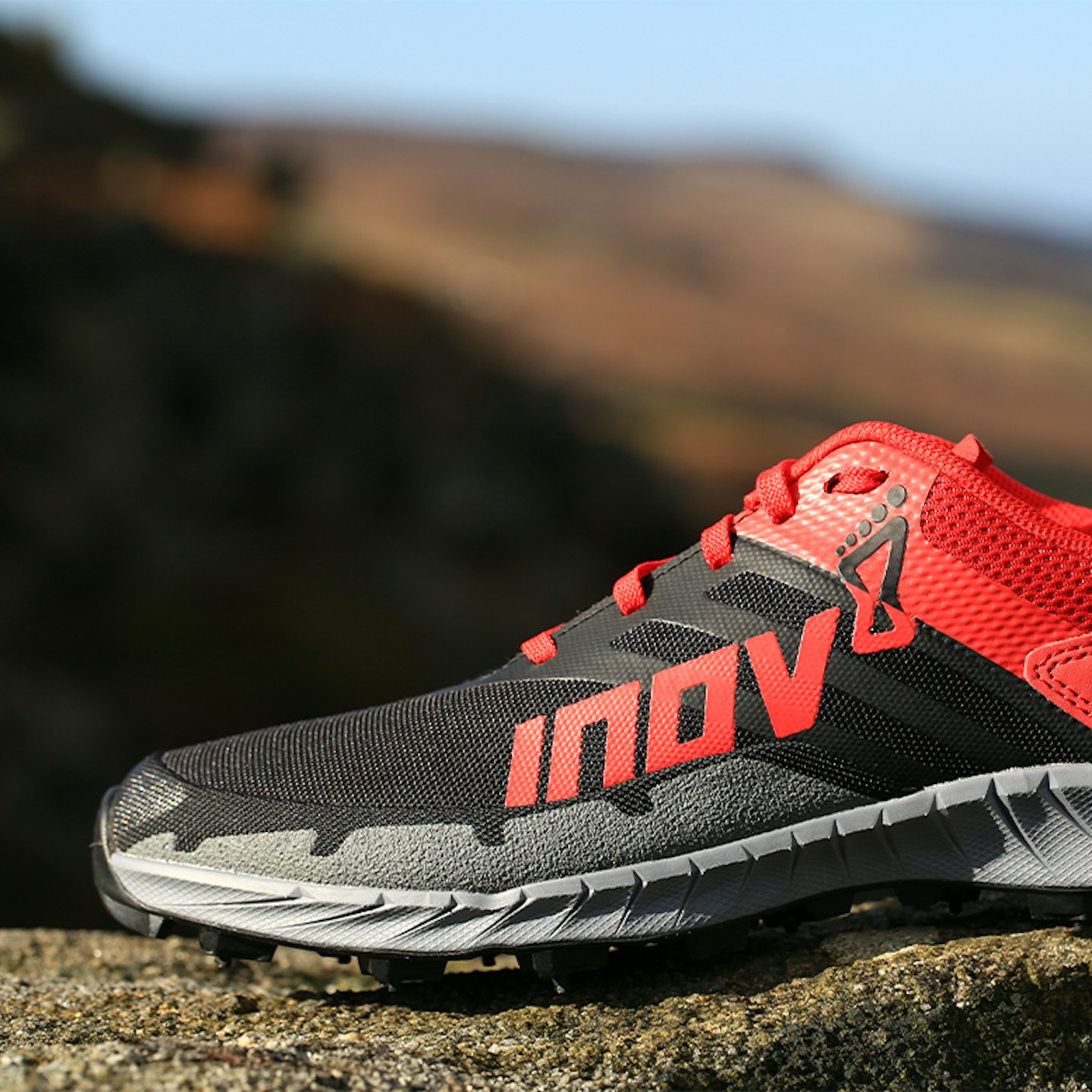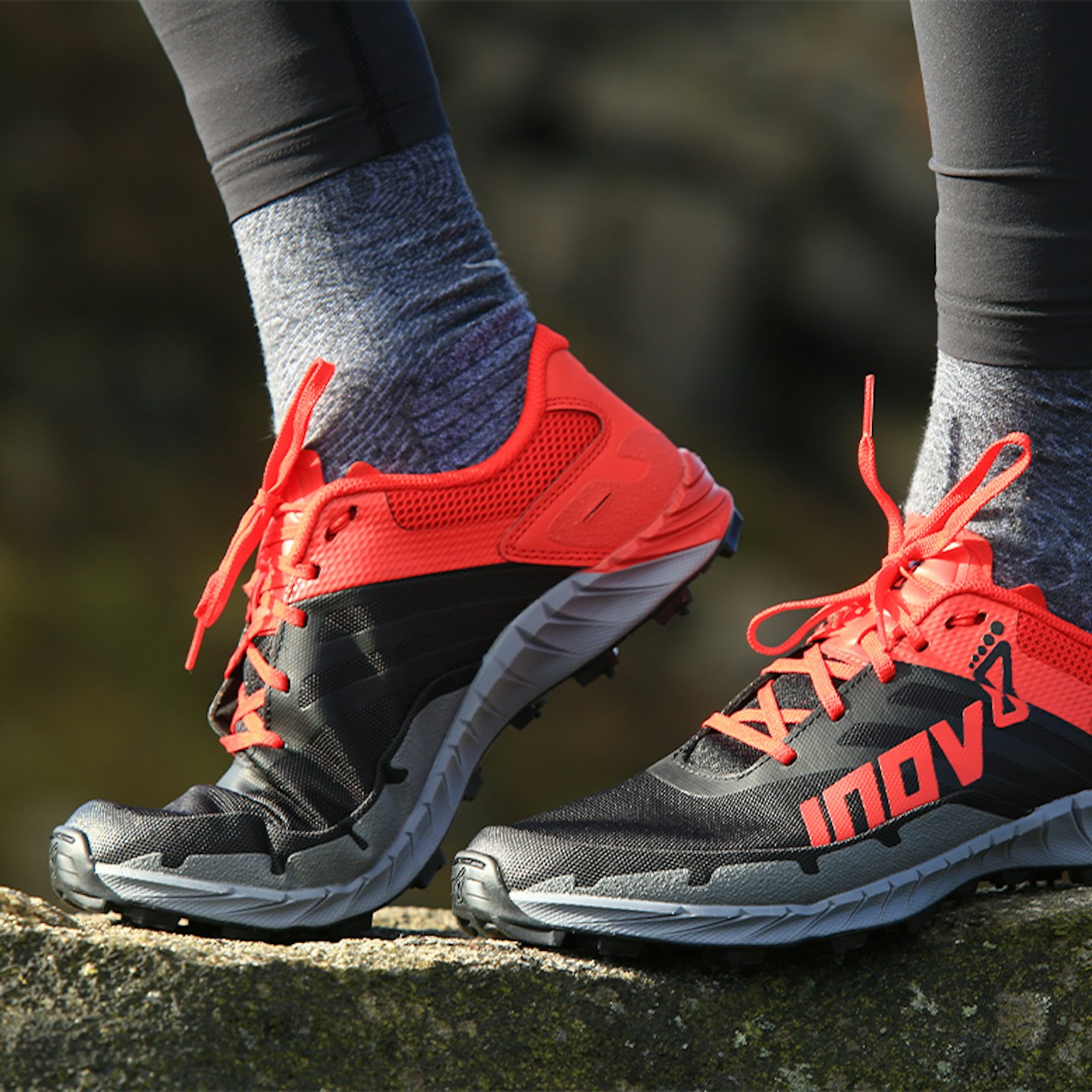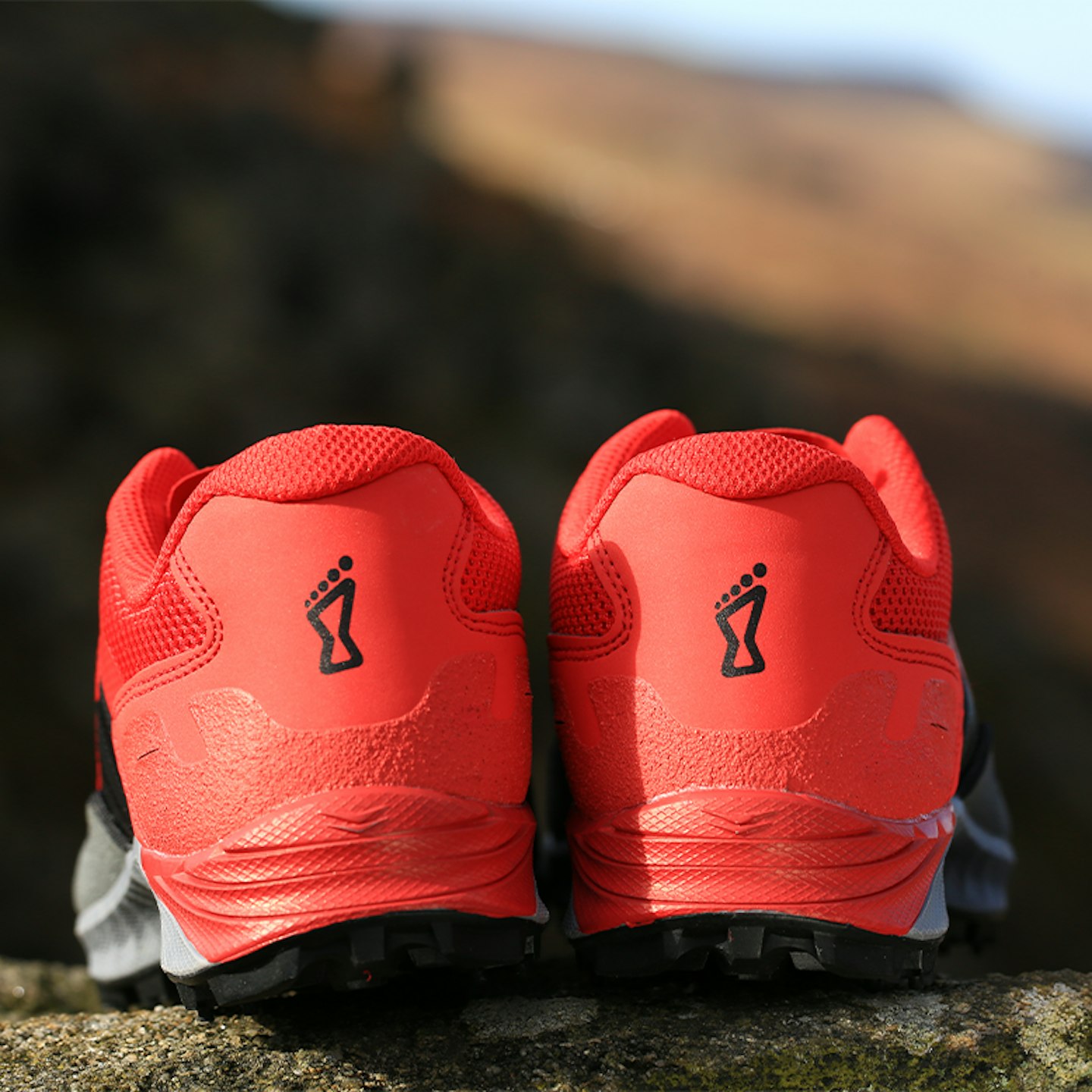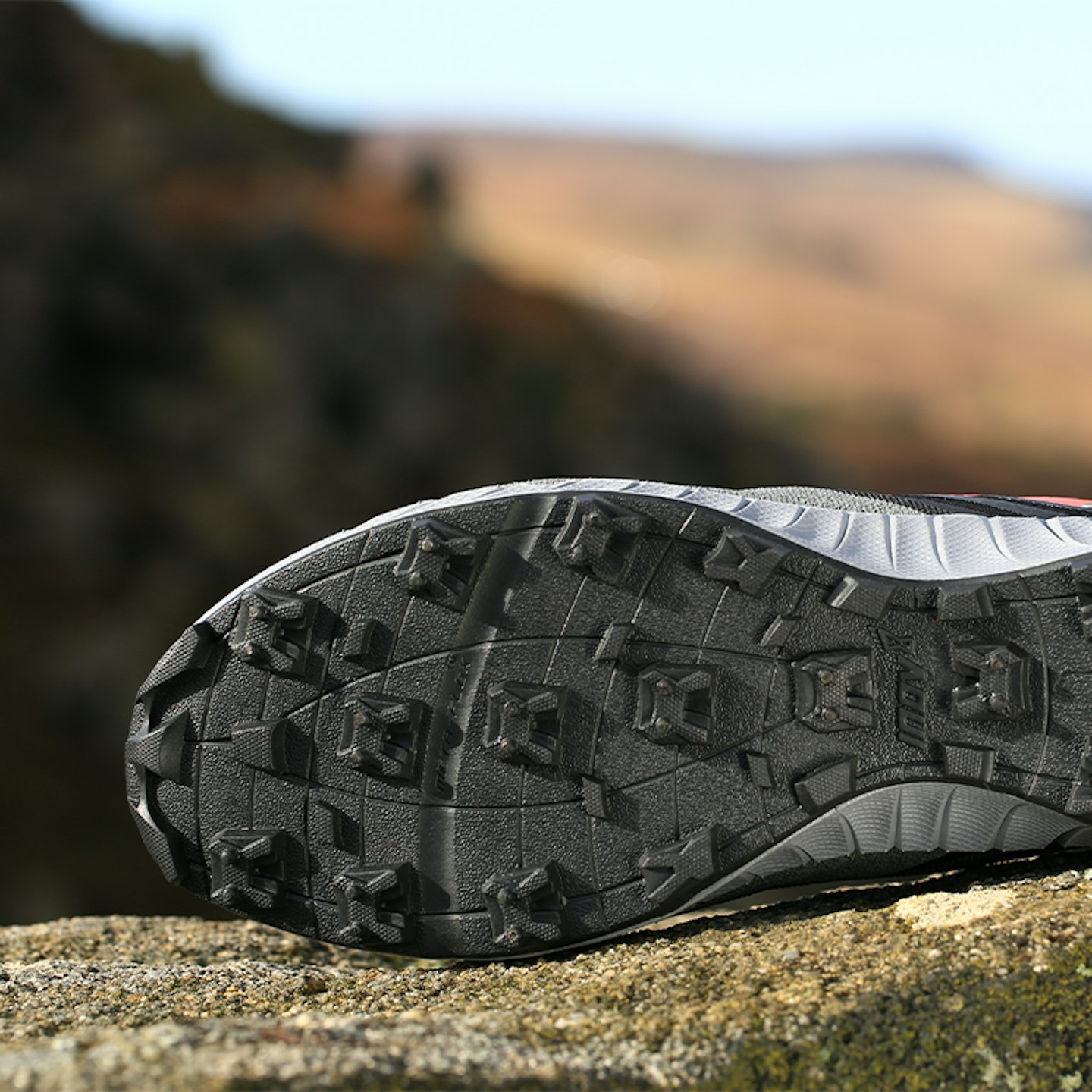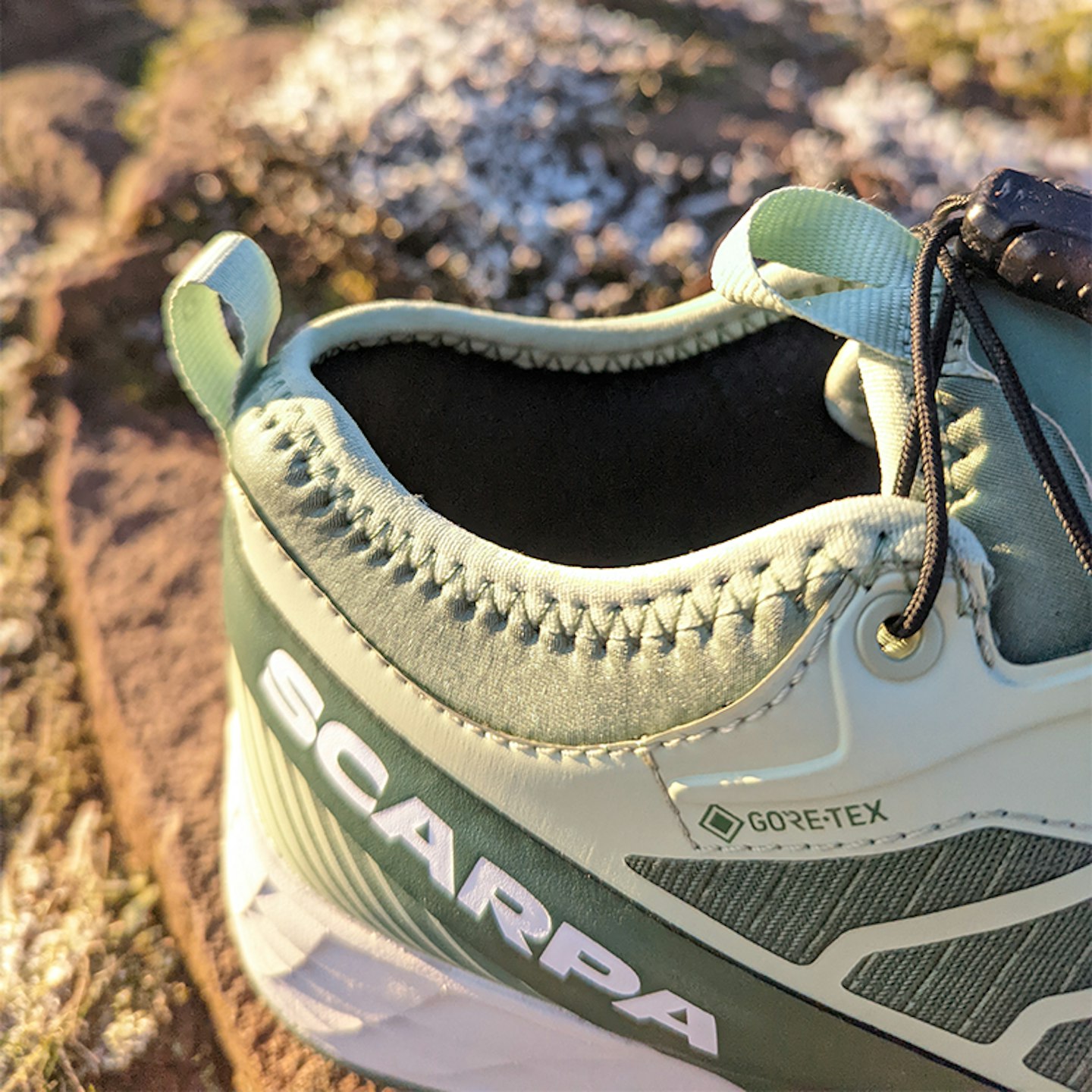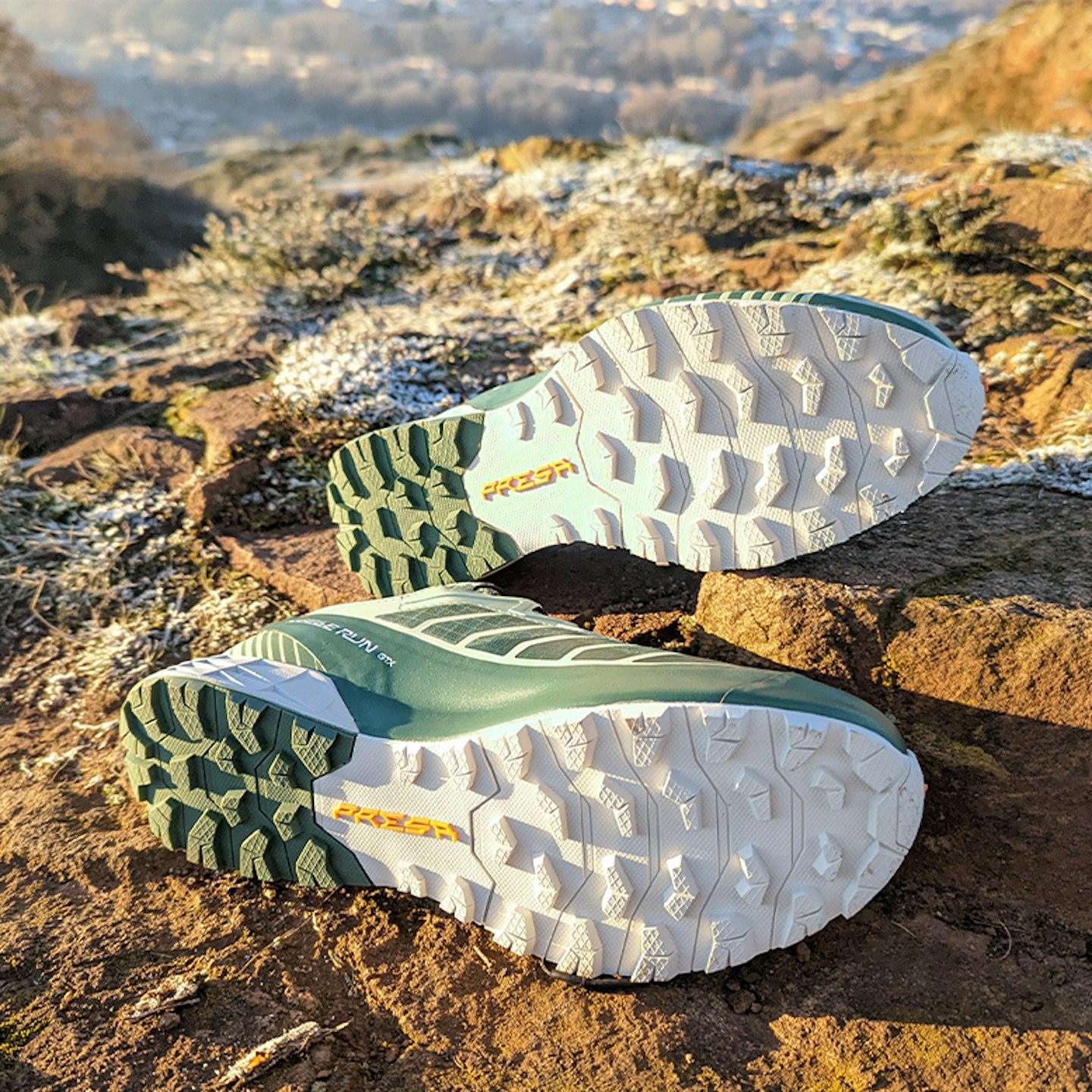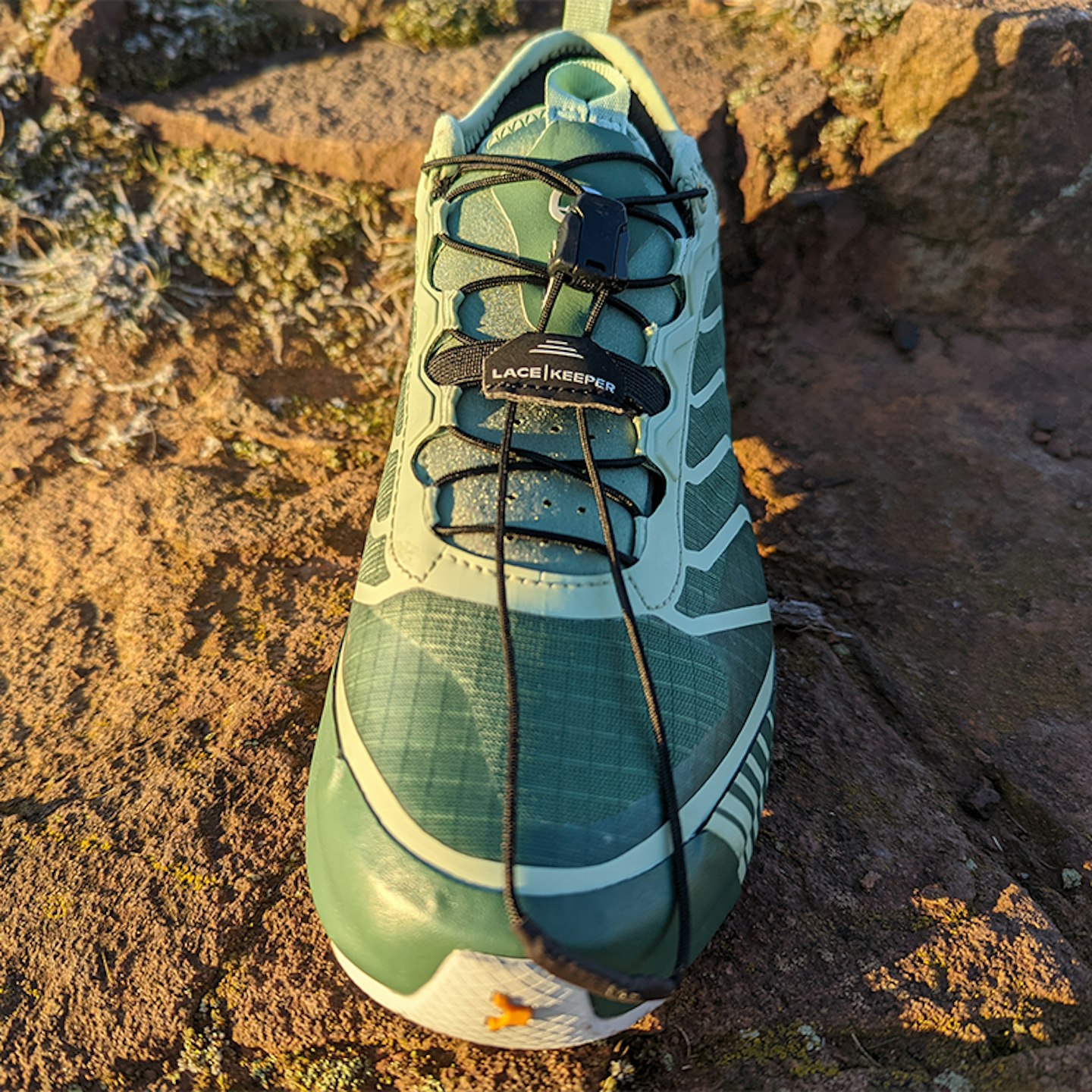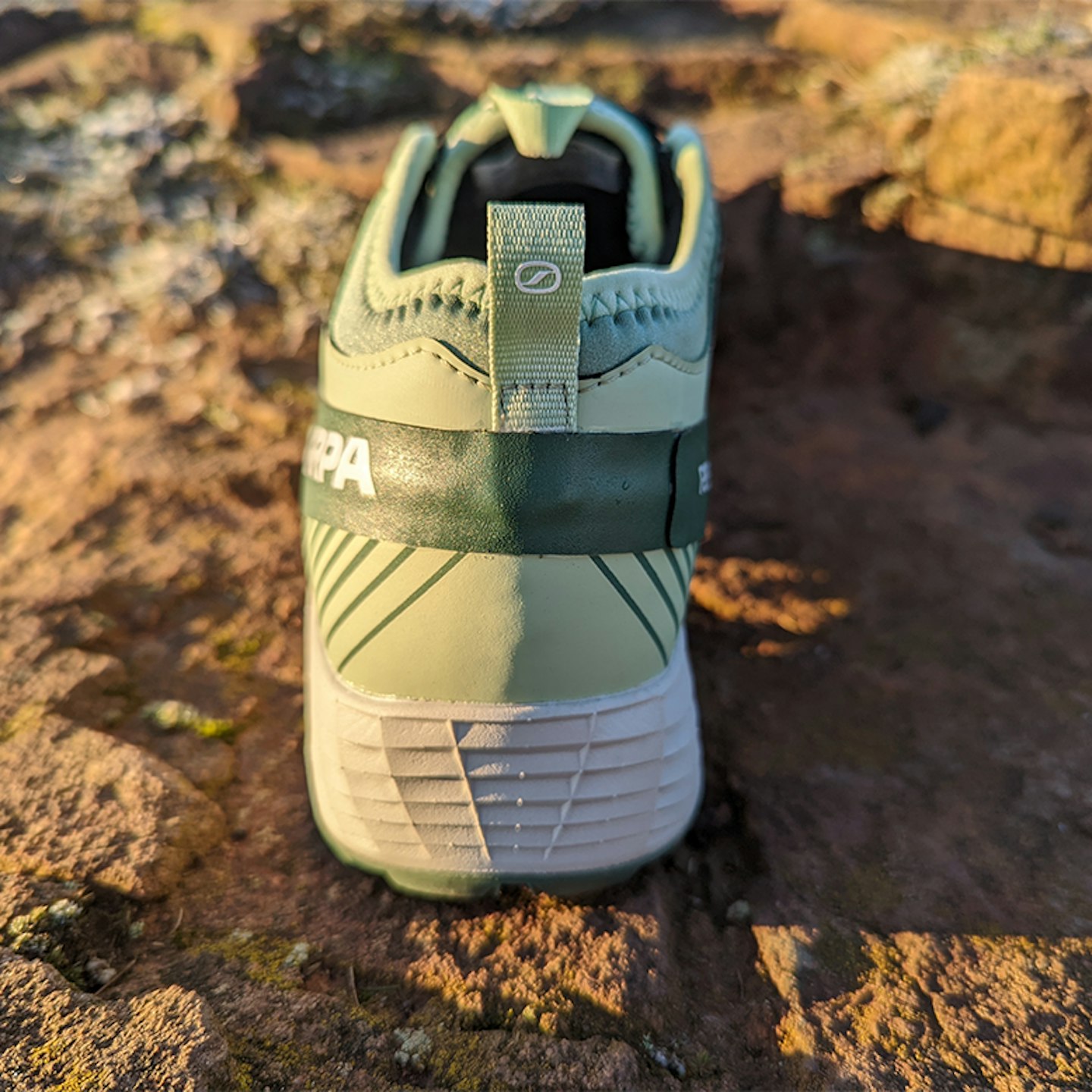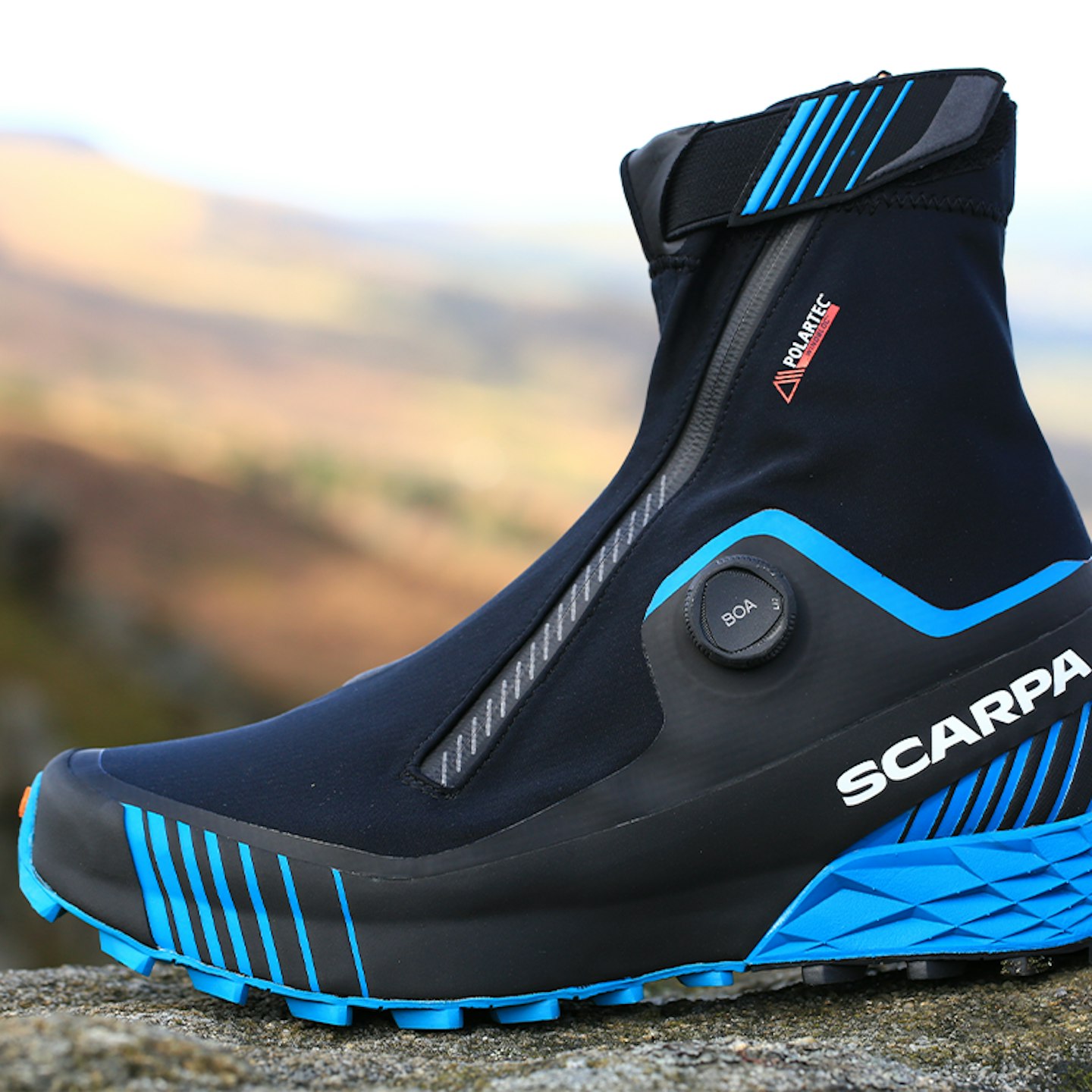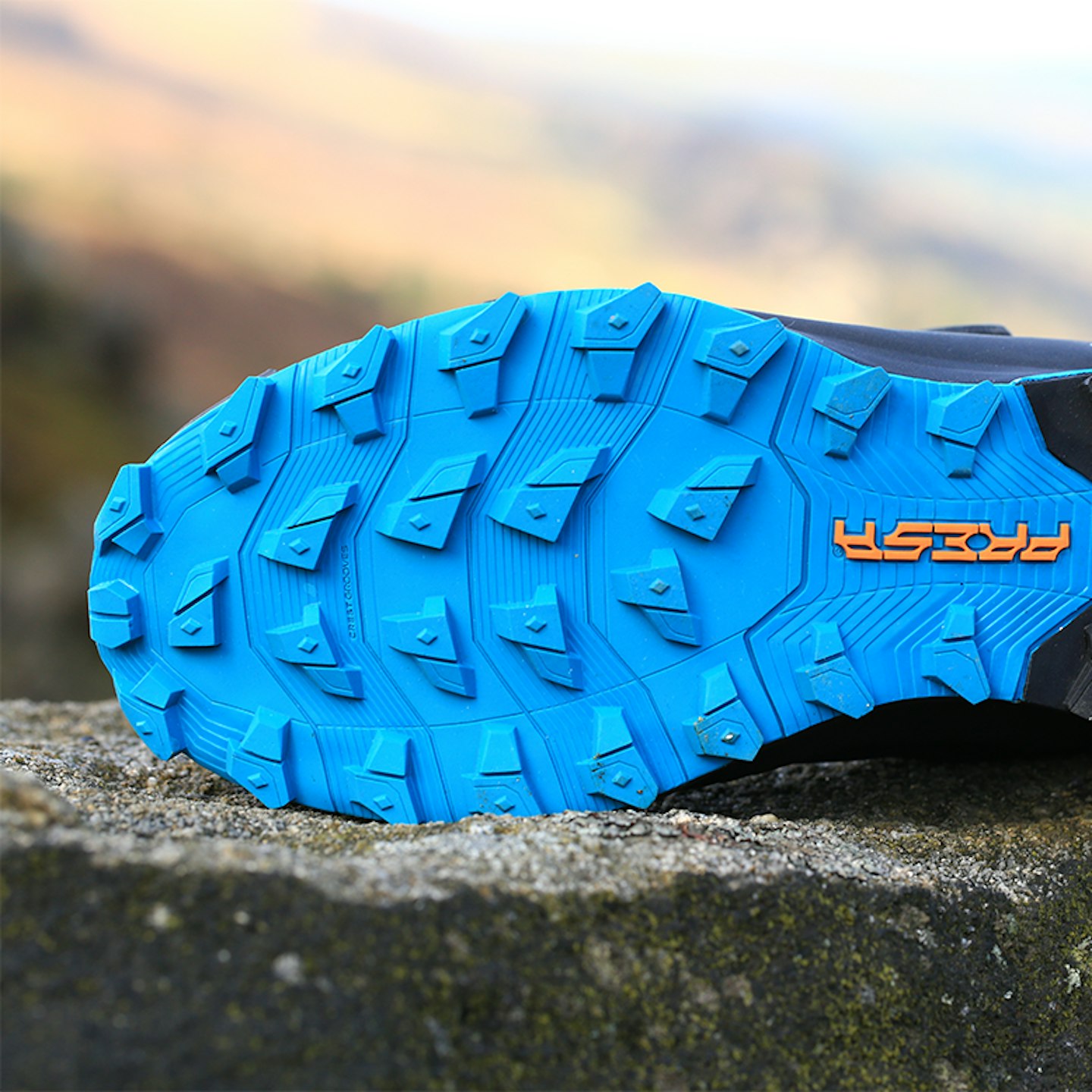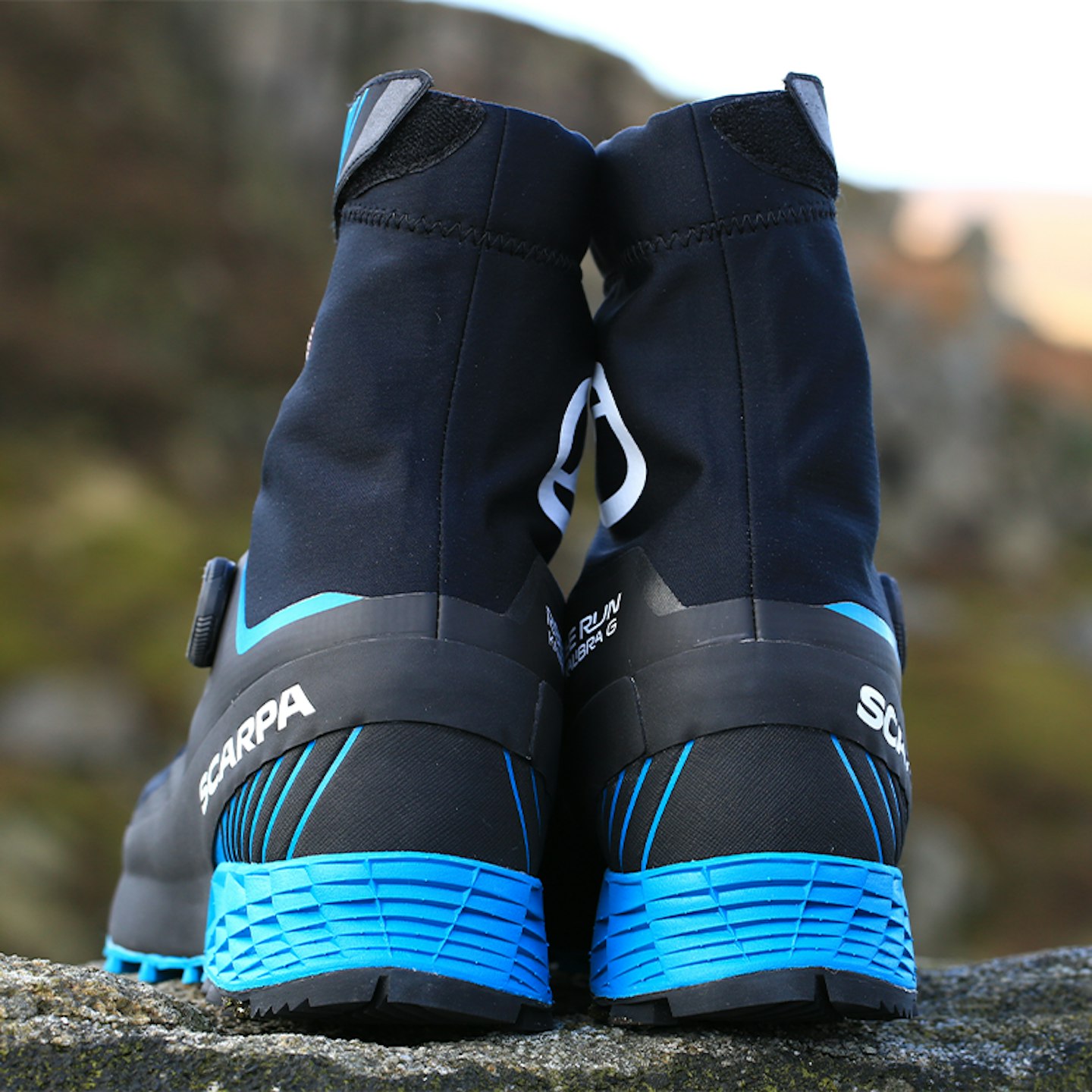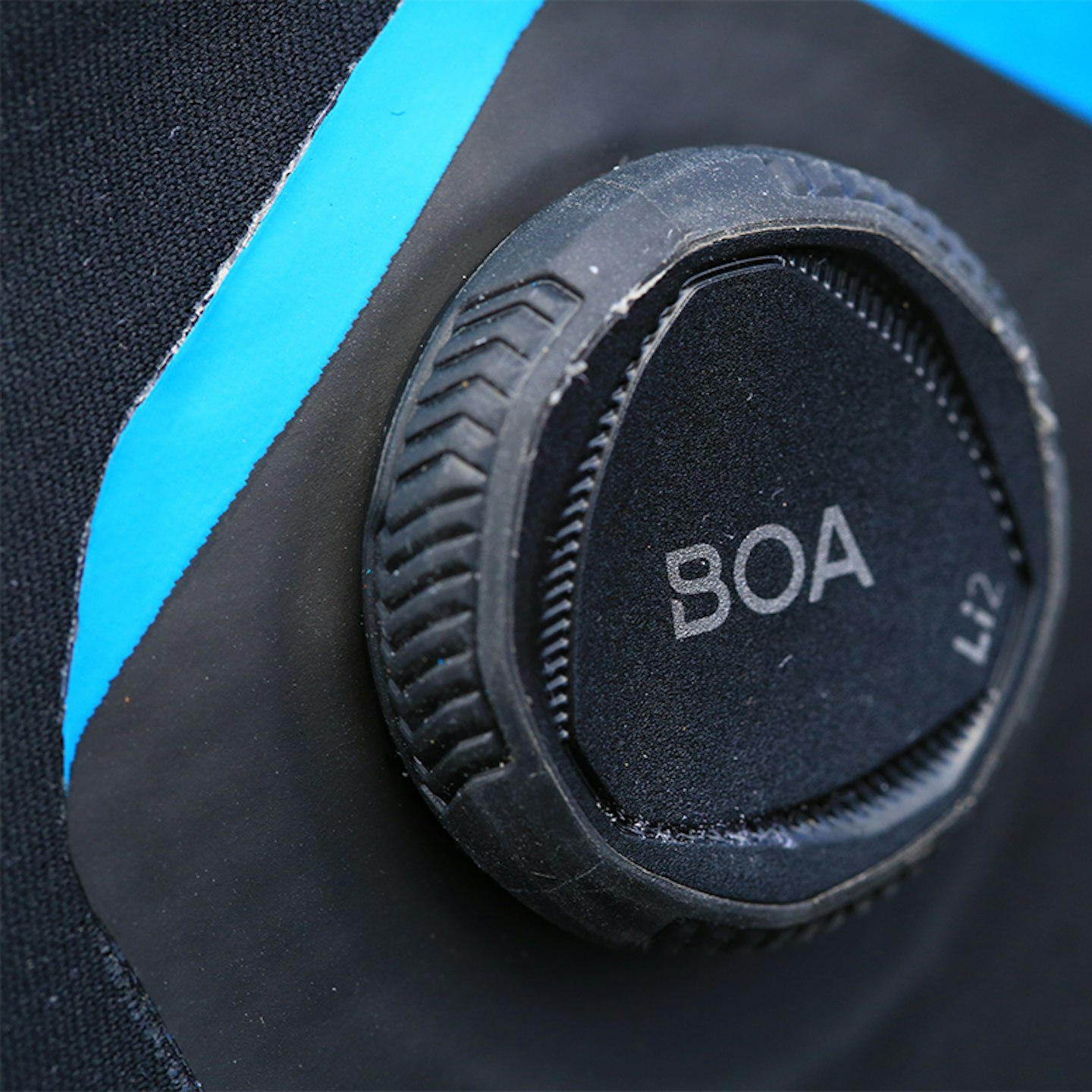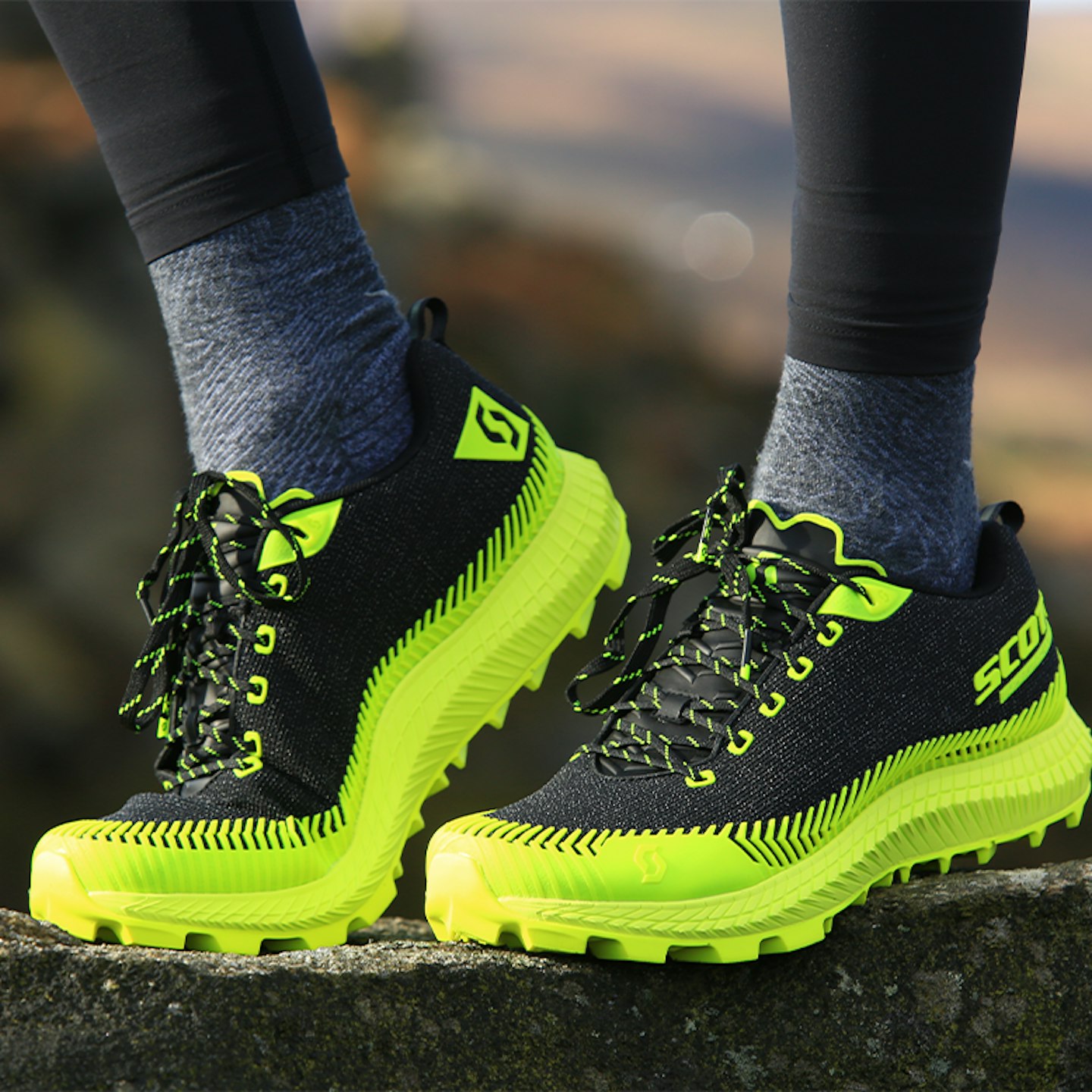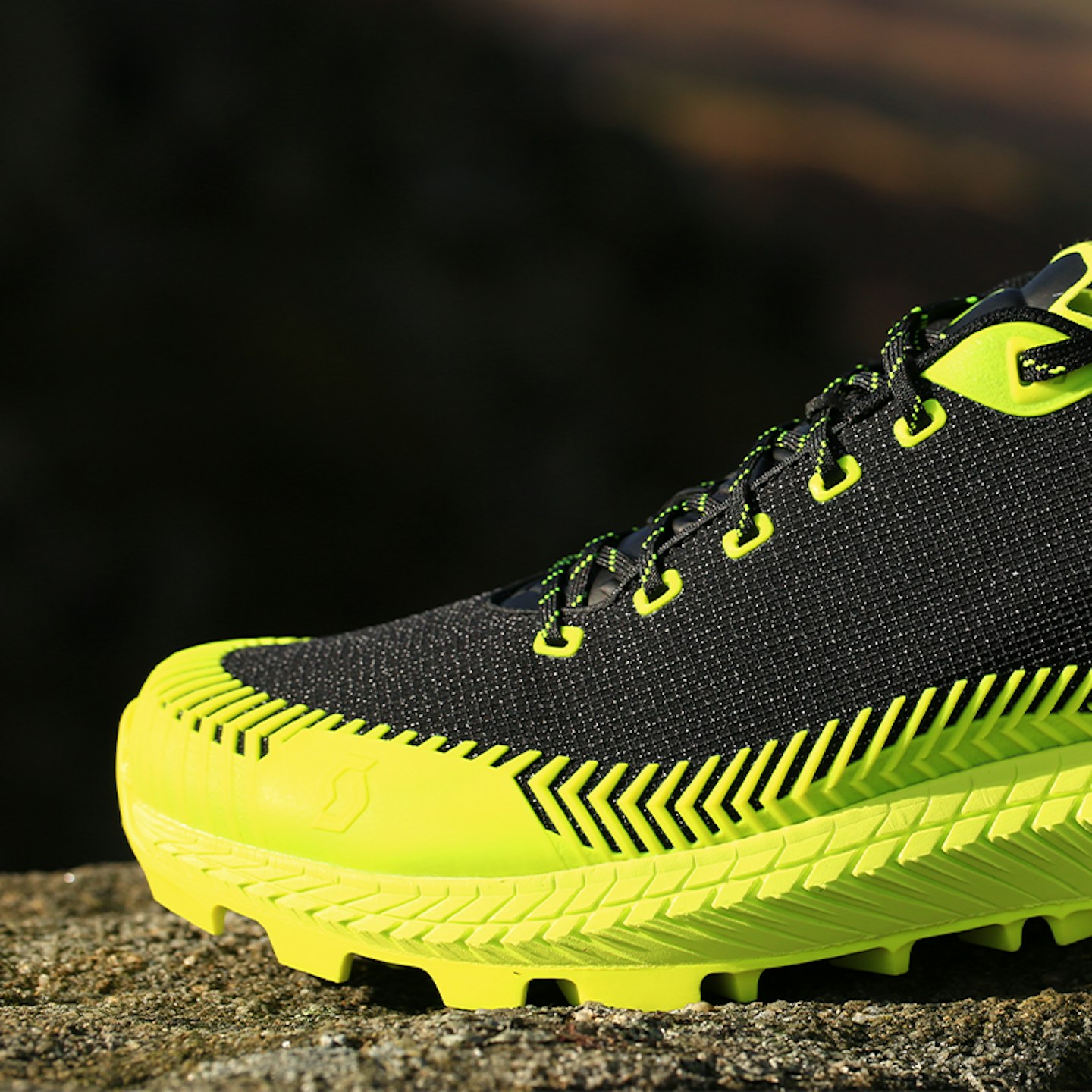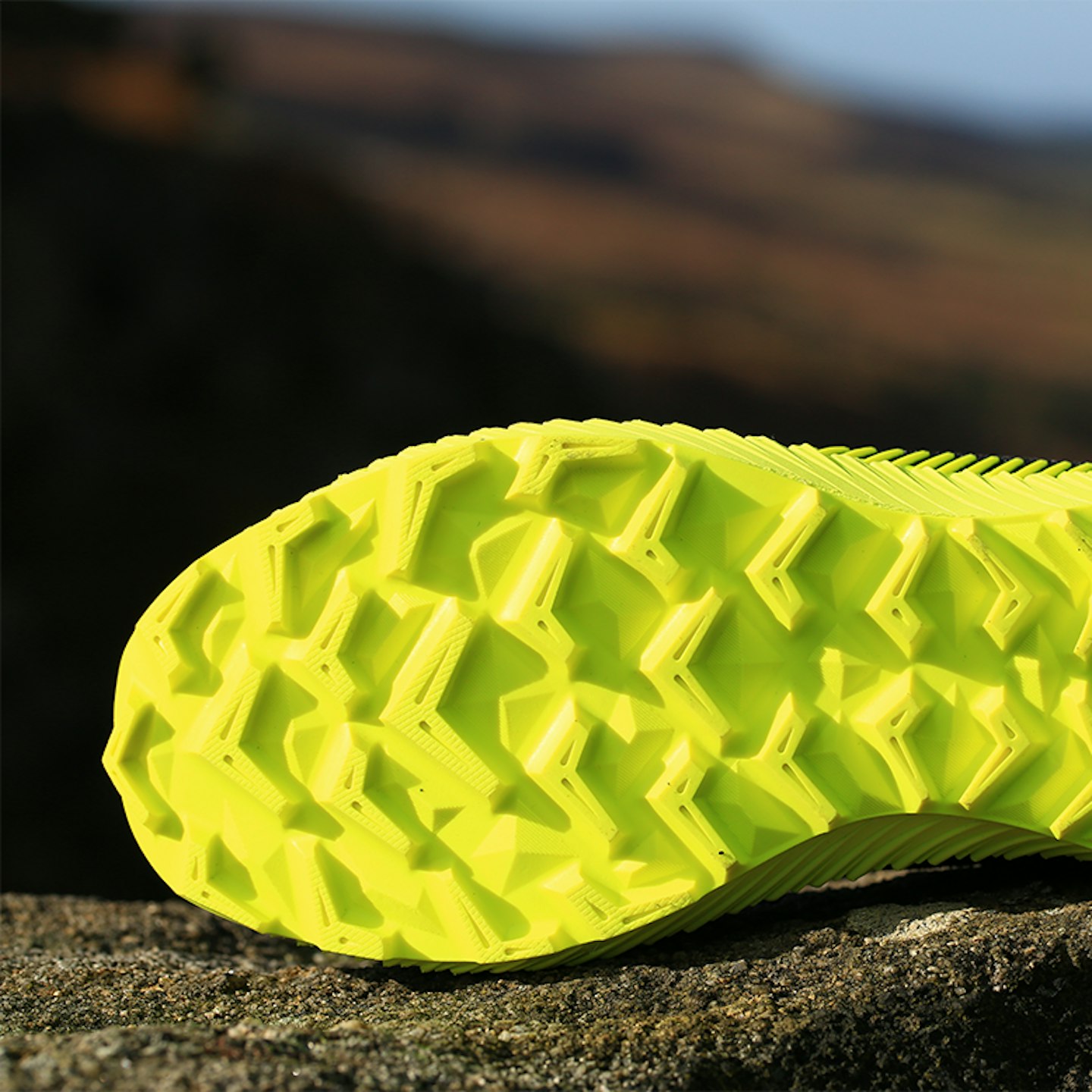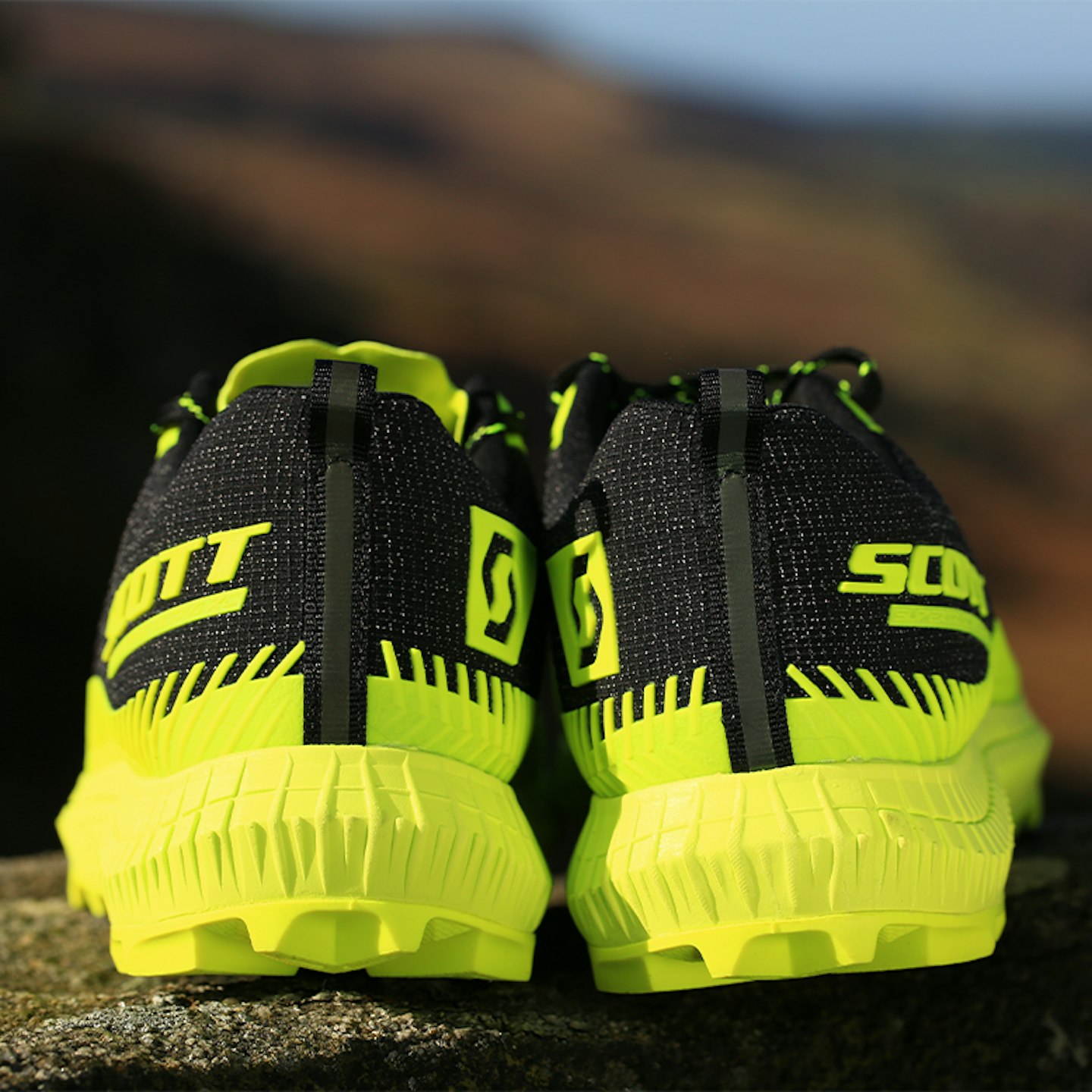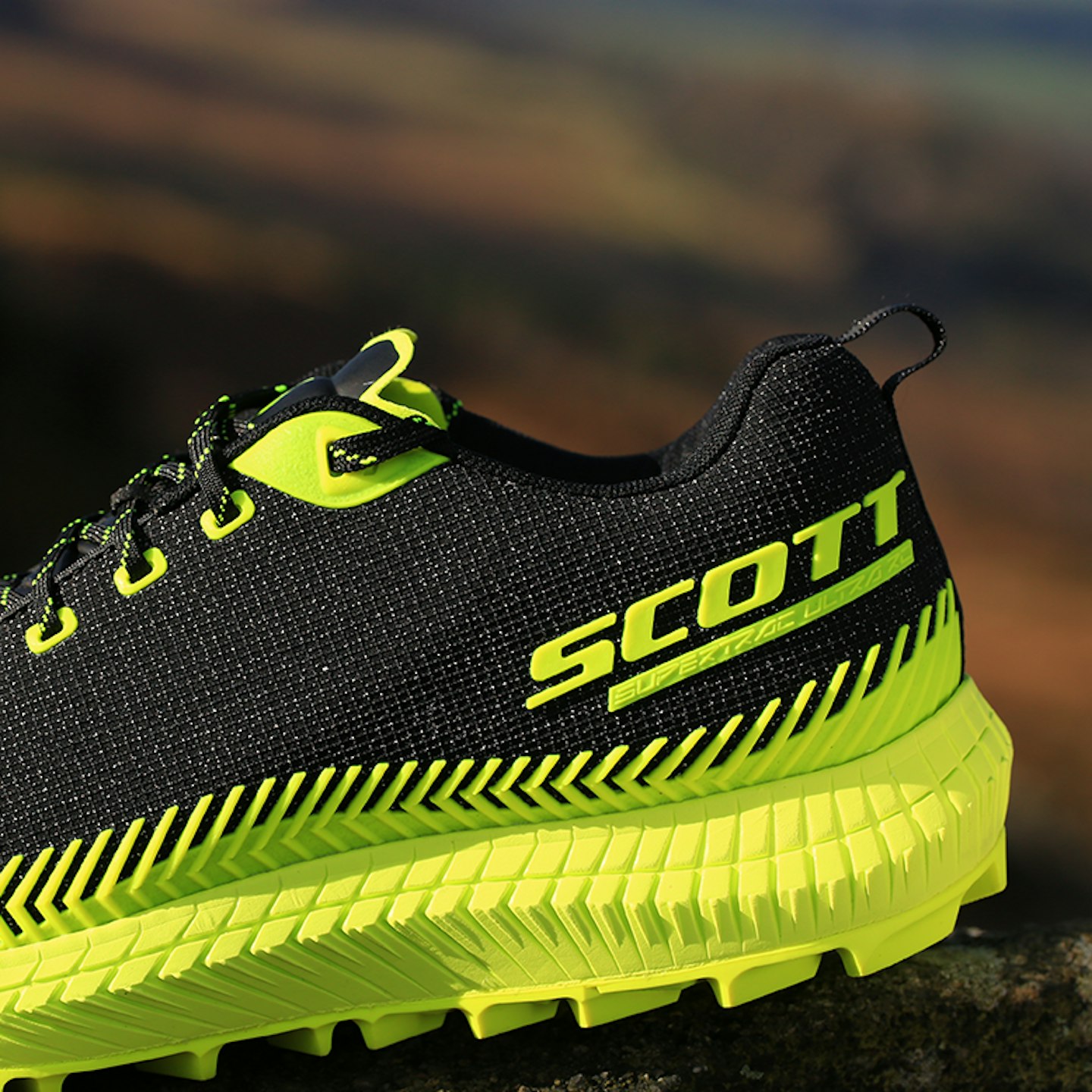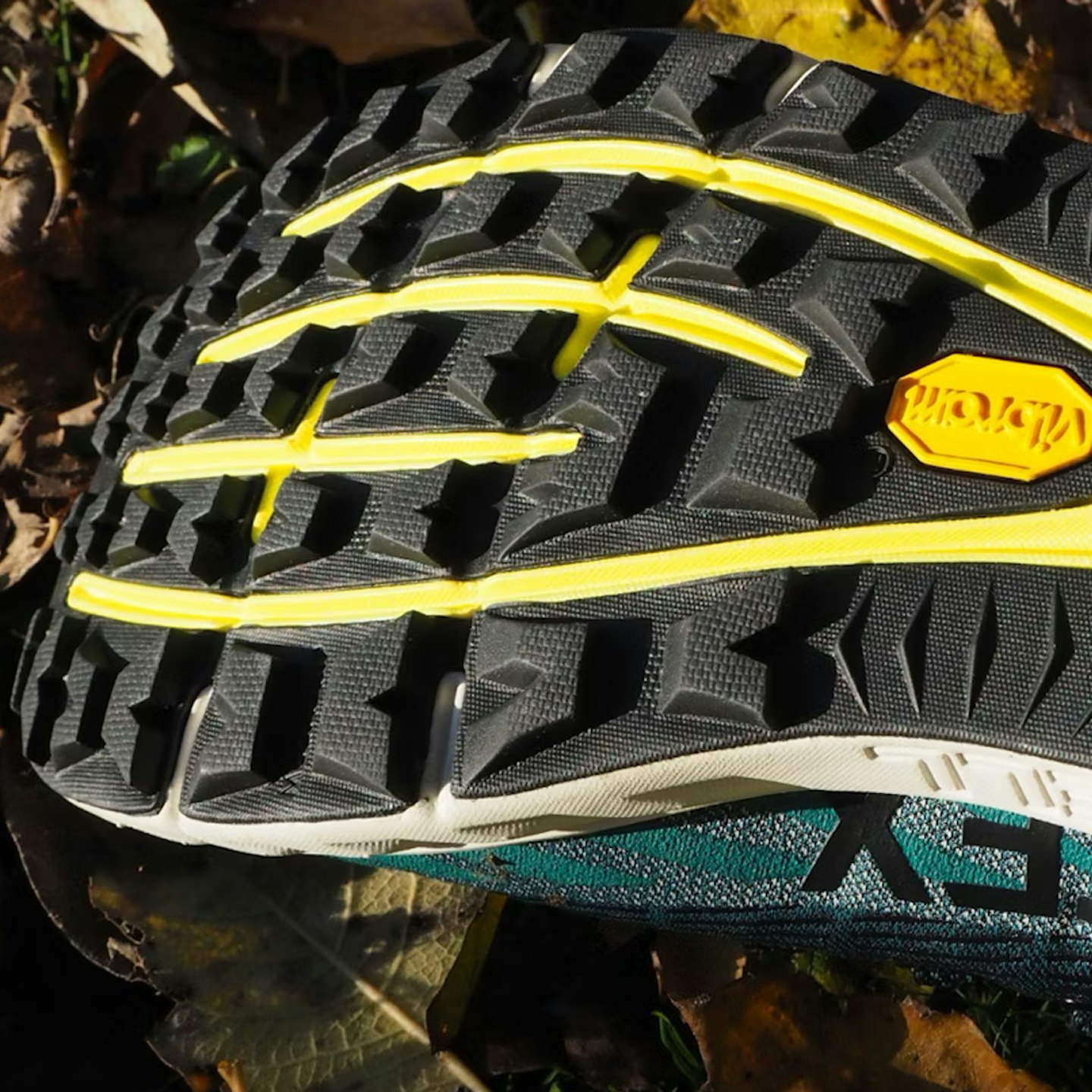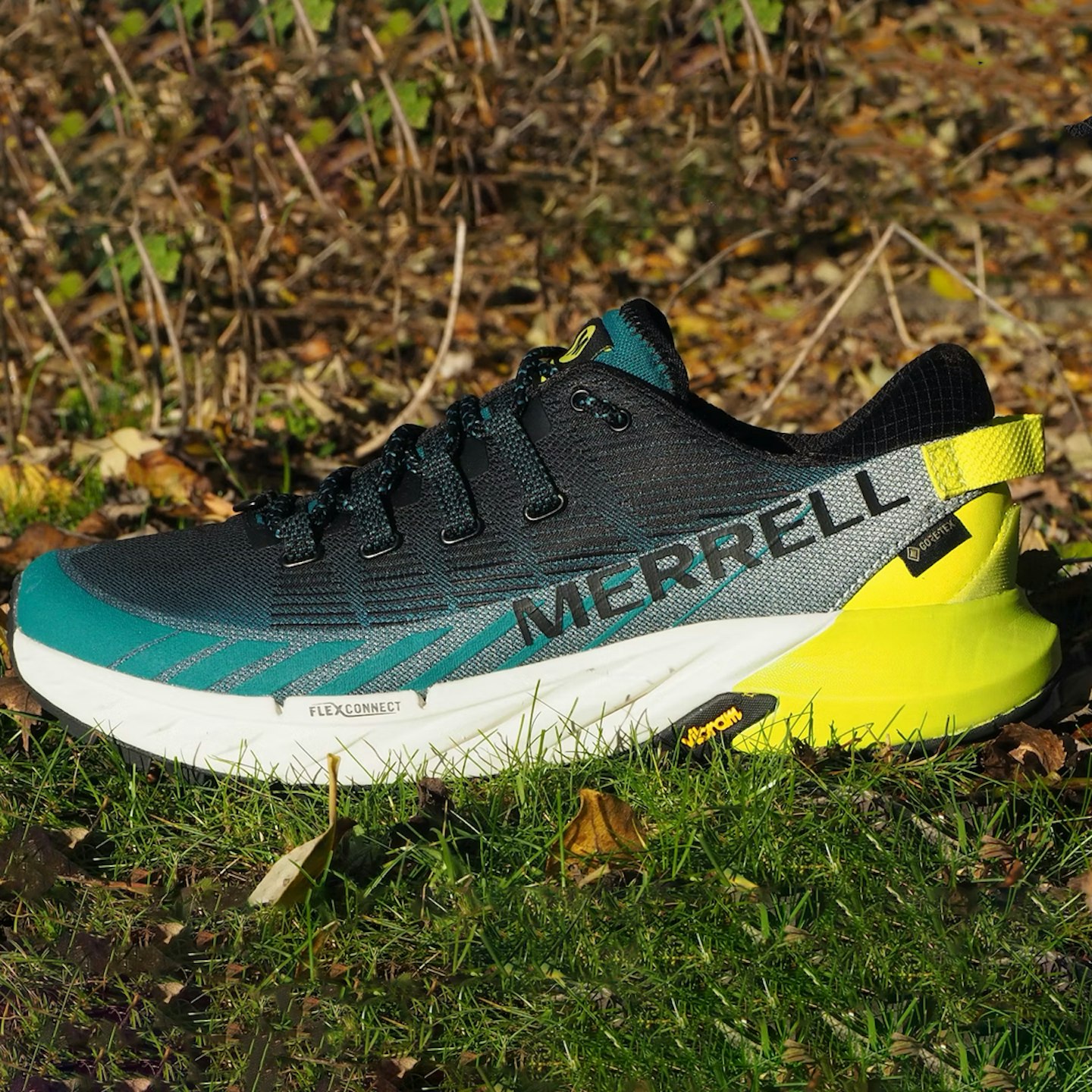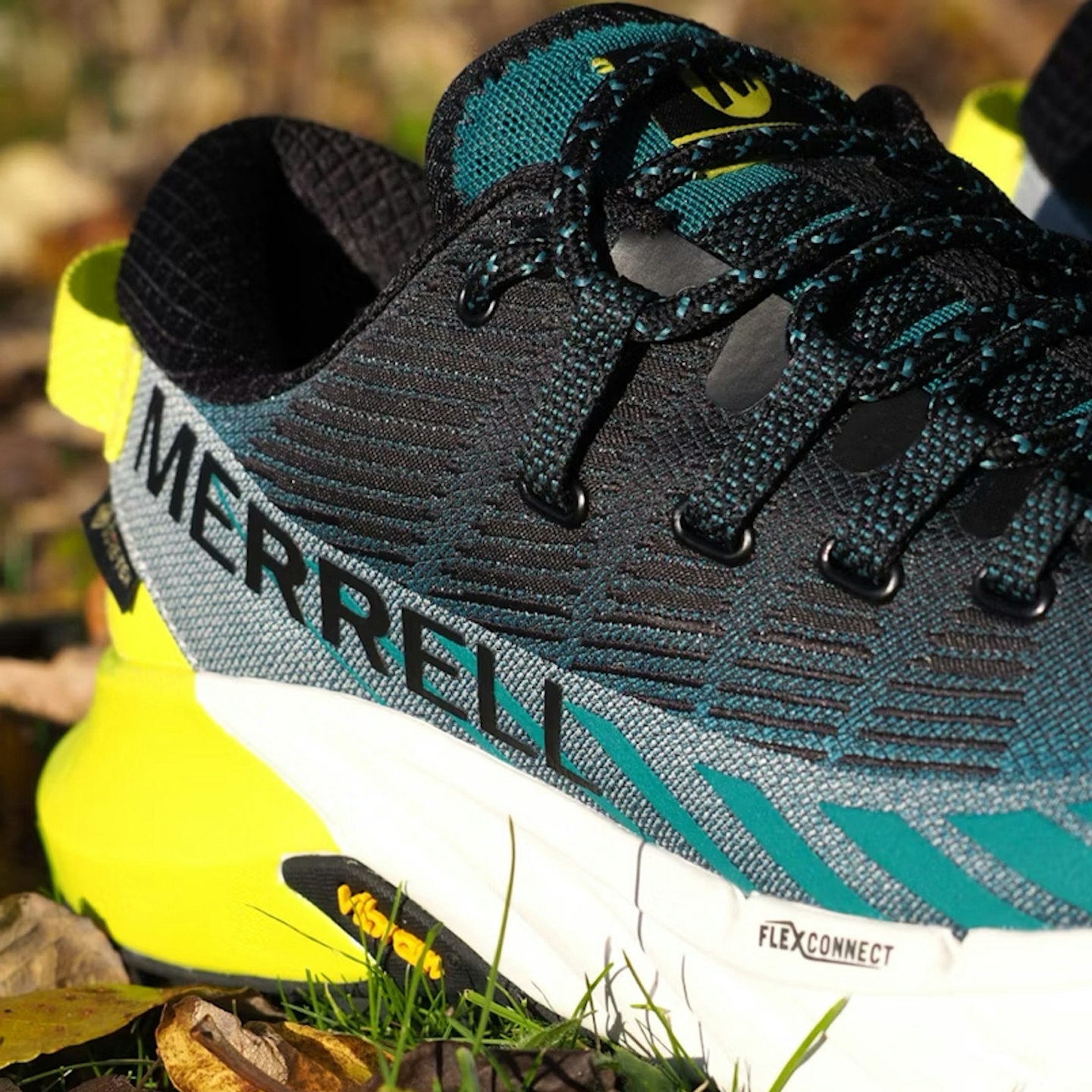Think security, think grip, think lug length, and you’ll have the three pillars of confidence that the best winter trail running shoes should provide. These are not your everyday trail running shoes, a pair of winter-ready kicks will make mincemeat of even the muddiest of trails. They'll keep you stable, upright, and powering forwards no matter what the trail throws your way.
Without a suitable pair of trail running shoes, you simply won't be able to run off-road during the winter months - unless you want a one-way ticket to accident and emergency, of course. Investing in a pair of winter runners will elevate your off-road runs, keeping you adventuring and exploring no matter the weather.
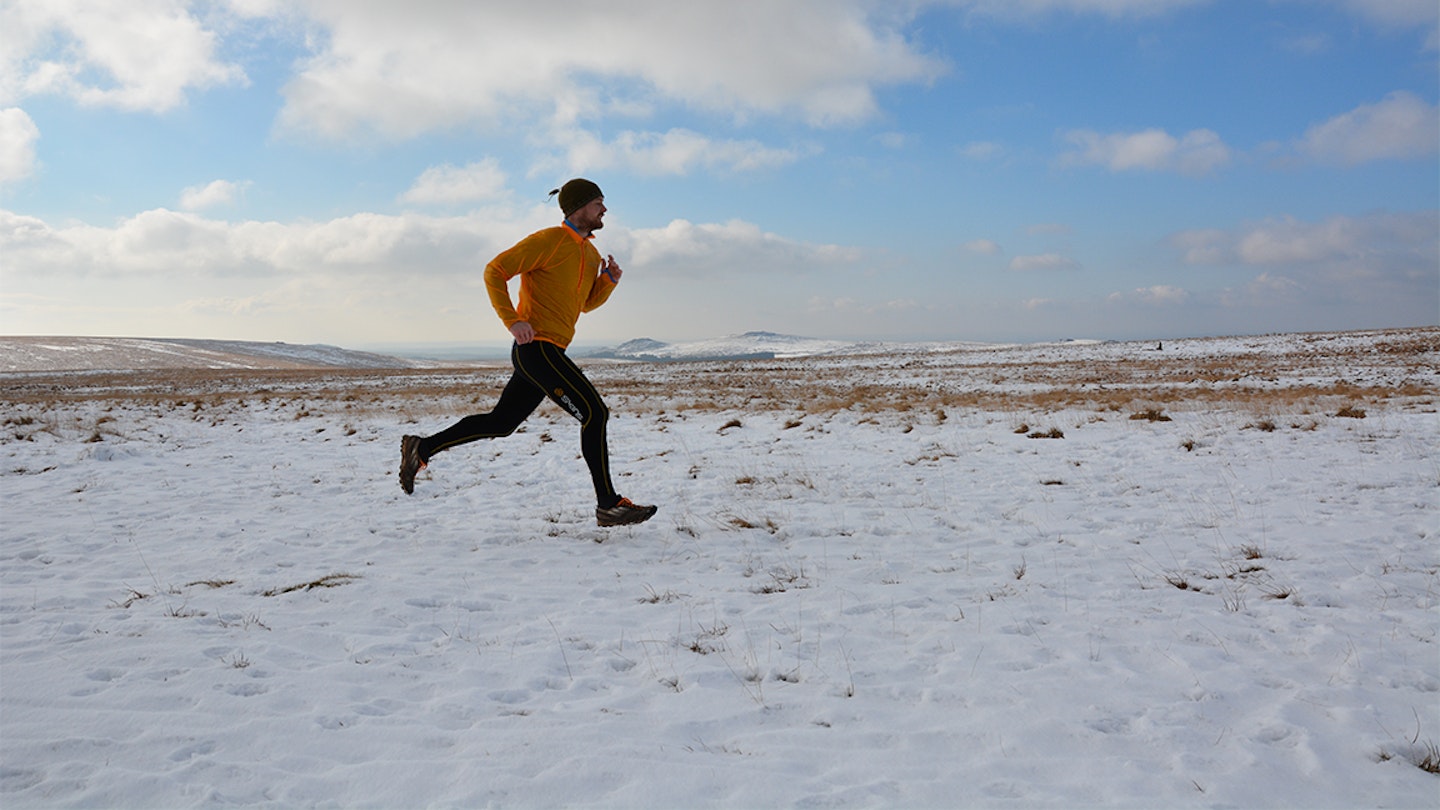
Many winter trainers will also come under the umbrella (no pun intended) of waterproof trail running shoes, or have a Gore-Tex version available. So look for this if you're sick of having to dry out your shoes after every run. Obviously, you'll also want to invest in a good-quality waterproof running jacket to shelter you from the worst of the showers.
Usually, a pair of good winter trail running shoes will have long grippy lugs to provide reliable traction, and extra protection along the upper and toes to ward off sharp rocks and roots. This will make them less suitable as a road to trail running shoe as long lugs can be uncomfortable on asphalt. Before you pick the right winter trail running shoes for you, be sure to consider the profile and camber of the terrain you'll be running on.
What are the best winter trail running shoes of 2024?
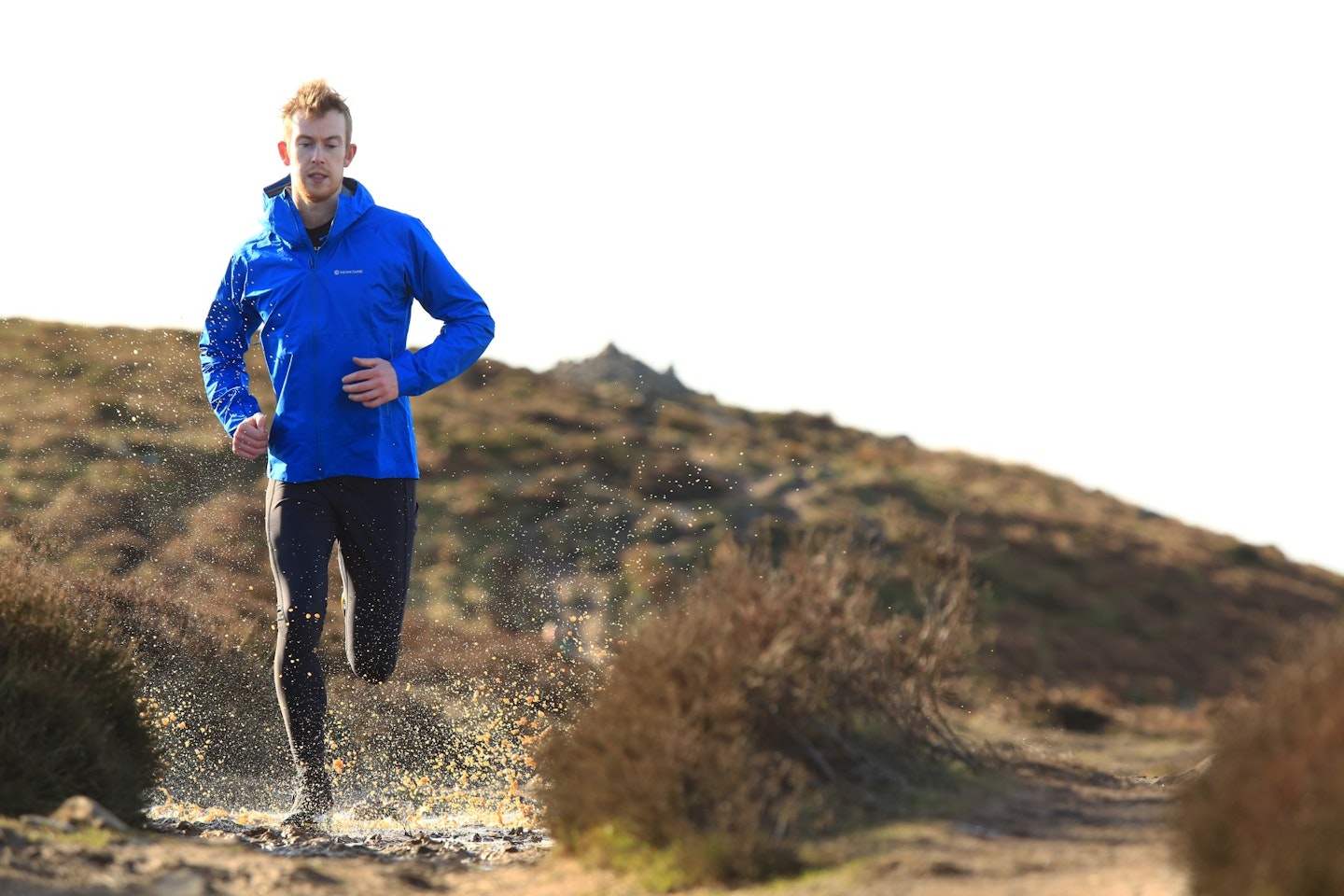
Adapting trail running shoes for winter conditions involves tweaking the sole and often the upper. You'd imagine the results would all be the same, but they vary considerably. Not only in form but function too. Some suit softer ground better, while others are angled towards the rocky terrain of mountain ridge lines.
We've been testing a range of winter running shoes to found out which trail running shoes are the most hardy and run-ready for off-road winter adventures...
Best in Test: La Sportiva Cyklon Cross GTX – View on Sportsshoes
Best Value: Inov-8 Oroc Ultra 290 – View on Inov-8
Best waterproof shoes: Scarpa Ribelle Run GTX – View on AlpineTrek
Best for snow running: Scarpa Ribelle Run Kalibra G – View on Sportsshoes
How we tested the best winter trail running shoes

The Live for the Outdoors team is full of runners who hit trails, forests, hills and mountains in every season, so they demand a lot of from their footwear and test them in all conditions, on every terrain. All of the shoes below have been used in the usual winter mix of water, mud, ice and snow; so the products we've picked represent what we think are the very best options out there for winter runners.
This article was compiled by Chris Williams, with input from Kate Milsom and Milo Wilson, with special attention paid to features like grip, durability, debris protection, and much more. For more details about how we test gear, click here.
Best winter trail running shoes in detail:
La Sportiva’s Cyklon Cross GTX (read our full review) looks rather overkill – almost daunting – in profile. But in truth, it’s a very comfortable and versatile winter trail running shoe that blends in and doesn’t look outrageous at all when you’re wearing leggings.
Its built-in gaiter does a fantastic job of keep out dirt, snow, and puddle splashes. And although I was suspicious of a gimmick at first, the BOA lacing system is great for a shoe like this. It provides a snug clamp around your foot that’s easily adjustable and fast to do-up or undo.
The outsole on the Cyklon Cross GTX is magnificent. It’s made from La Sportiva’s Frixion White compound, which is moderately durable and super sticky. Combined with an aggressive lug pattern, the Cyklon Cross GTX is easily one of the best trail running shoes for mud and snow. But the Frixion White sole is also compatible with La Sportiva’s AT Grip spikes, so the shoe instantly becomes an ice champion too.
In addition to ample debris protection, the Cyklon Cross GTX has a lot of spongy cushioning underfoot. Although, there’s mediocre toe protection – just a minimal TPU toe cap. It's something to consider if your routes involve a lot of rock too.
Check out the women's version here
Pros
- Versatile
- Excellent debris protection
- Incredible grip
- Perfect for slushy British terrrain
Cons
- Minimal toe protection
| Men's sizes | EU 38 - 47.5 |
| Women's sizes | EU 36 - 43 |
| Weight (per shoe) | 350g |
| Drop | 7mm |
| Stack height | 26.5mm/19.5mm |
| Lug depth | 6.5mm |
Inov-8 calls its Oroc Ultra 290 the ‘world’s first long-distance orienteering shoe’. I did orienteering at school but Inov-8 is referring to the adult version, which takes place over very harsh terrain.
As such, the Oroc Ultra 290 is tooled up to take you across wilderness that wants to stop you. Up top, the upper is a single piece of hardy ballistic nylon and a rand that runs around the entire toe box, almost to the heel. Underneath, each 5mm lug has a pair of spikes. Over frozen ground and mud, no other trail running shoe offers as much grip. This design works on rock too but it scrapes and sounds horrendous.
The extra armour and grip ups the weight a bit but 290g is still lightweight, and considerably lighter than the La Sportiva Cyklon Cross GTX. The shoe feels stiffer than what you might be used to, simply because of that tougher upper. Ample protection is also supplied by the shoe’s midsole, which is great for long distances.
Check out the women's version here
Pros
- Unbeatable grip on mud and ice
- Relatively good price
- Super tough upper
Cons
- Quite specialist
| Men's sizes | UK 6 - 12 |
| Women's sizes | UK 4 - 8.5 |
| Weight (per shoe) | 290g |
| Drop | 6mm |
| Stack height | 13mm/7mm |
| Lug depth | 5mm |
Designed for wet conditions dover alpine trails, the Scarpa Ribelle Run GTX is an agile trail running shoe ideal for shorter to moderate distances.
The Ribelle showcases a sturdy design for trail running, featuring an easy-to-use fastening system that evenly disperses pressure across the foot, and locks in the heel well. Its robust build provides comprehensive defence against rugged terrain, although this rigidity can also limit flexibility and propulsion.
We appreciate the strategic cushioning, thoughtfully positioned at the upper heel and tongue, while the comfortable sock liner wraps the foot securely, guarding against water infiltration.
The 4mm lugs and tread patterns may not be the most aggressive for traversing deep, muddy terrain, but they perform admirably across a diverse range of surfaces, and best of all, the feet stay dry when splashing through muddles and wet grass!
Check out the men's version here
Pros
- Excellent waterproofing
- Secure sock liner and lacing system
- Well-placed cushioning
Cons
- Feels a little rigid
| Men's sizes | UK6.5 - 13 |
| Women's sizes | UK3.5 - 8 |
| Weight (UK5.5) | 284g |
| Drop | 4mm |
| Stack height | 25mm/21mm |
| Lug depth | 4mm |
Similarities between this and the La Sportiva Cyklon Cross GTX are immediately obvious: built-in gaiter, BOA lacing system. Indeed, the two are certainly direct competitors, intended to provide the best possible protection while running in snow, mud, and general cold conditions.
The gaiter on the Ribelle Run Kalibra G is taller than the one on the La Sportiva Cyklon Cross GTX. It also differs slightly, being made from Polartec Windbloc. It’s therefore a bit better in terms of debris protection and battling against the cold.
La Sportiva’s Cyklon Cross GTX has the same outsole as the standard Cyklon, but Scarpa’s Ribelle Run Kalibra G outsole is different to the standard Ribelle Run. The one on the Ribelle Run Kalibra G is better suited for snow and ice.
As an alpine running shoe, the Scarpa Ribelle Run Kalibra G is hard to fault in terms of performance. It’d be ideal if you lived in Liechtenstein, but it’s a bit overkill for the UK unless you live in the Highlands. And it’s quite expensive.
Check out the women's version here
Pros
- Great protection from the elements
- All the right ingredients for alpine/snow running
Cons
- Overkill for most UK locations
| Men's sizes | EU 39 - 48 |
| Women's sizes | N/A |
| Weight (per shoe) | 370g |
| Drop | 4mm |
| Stack height | 24.5mm/20.5mm |
| Lug depth | 5mm |
This is the most comfortable trail running shoe I’ve tested. Scott has done an incredible job here, designing a wonderful model for mountain running.
The outsole is very clever. Deep arrow-shaped lugs provide huge amounts of grip on soft ground, but the designers have also managed to keep plenty of rubber in contact with the ground when rock hopping too. It’s also super stable, thanks to the lug pattern around the edge of the forefoot.
The upper fabric is from Schoeller. Like the Inov-8 Oroc Ultra 290, it’s a single piece for durability. It’s also stretchy, breathable, and highly water resistant. Scott’s Supertrac Ultra RC also has a stiffer, more protective toecap than the La Sportiva Cyklon Cross GTX.
Coming back to comfort, the stretchy Scholler fabric is key. But so too is the stiff heel counter and cleverly padded and shaped heel collar. They lock the heel in place beautifully and the fit over the rest of the foot is on the right side of snug.
Check out the women's version here
Pros
- Superb comfort
- Impressive outsole
- Excellent protection
Cons
- Other options here are better on ice and snow
| Men's sizes | UK 6 - 12 |
| Women's sizes | UK 3.5 - 8.5 |
| Weight (per shoe) | 340g |
| Drop | 8mm |
| Stack height | 29mm/21mm |
| Lug depth | 7mm |
Merrell's Agility Peak 4 GTX is quite a versatile trail running shoe for winter. Its Vibram sole doesn't offer quite the same levels of grip as the Scott Supertrac Ultra RC, but it's still very good over wet and damp surfaces.
We like the firm toe cap and beefy midsole. It's not a shoe with much feel but plenty of foot protection. Somewhat inevitably, the Agility Peak 4 GTX isn't the lightest trail running shoe around. So while it's not for PBs, its traits make it a wonderful companion for exploring new trails.
The fit is cosy, borderline intimate. As you might with Salomon's, for example, don't be afraid to go up half a size here. Read our full review of the Merrell Agility Peak 4 GTX.
Check out the women's version here
Pros
- Waterproof
- Good foot protection
- Versatile
Cons
- Scott Supertrac Ultra RC has more grip
| Men's sizes | UK 6.5 - 13 |
| Women's sizes | UK 3.5 - 9 |
| Weight (per shoe) | 300g |
| Drop | 6mm |
| Stack height | 30mm/24mm |
| Lug depth | 5mm |
How we test winter trail running shoes
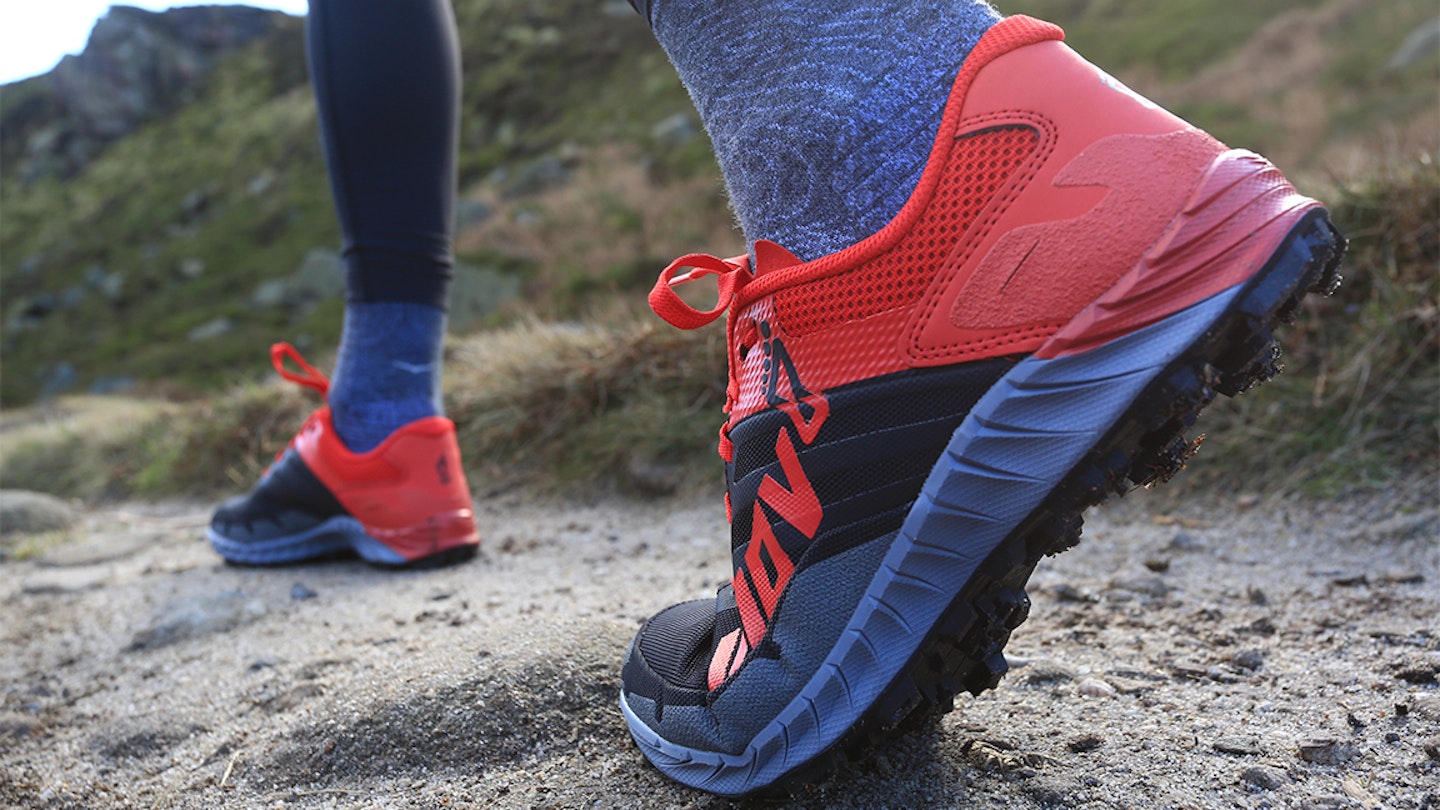
The trail running footwear we test undergo thorough and unbiased, real-world testing. As soon as they arrive with us, they get allocated to one of our experienced gear testers, who get stuck right into the most gnarly muddy, rocky, and boggy off-road winter terrain.
There's many factors to consider when testing and reviewing winter trail running shoes, from the obvious, such as comfort and performance (read: grip), to the less obvious but equally important, such as protection, stability, durability, and sustainability.
The shoes in this group test were mostly put to work by our trail running and hiking guru, Chris, in the Yorkshire dales and surrounding trails (yes, those are in fact his feet in the photos above and below). Click here for more info on how we test gear at LFTO.
What to look for in a winter running shoe
Breathability: In the same way you’d look for fabrics that breathe in t-shirts, go for materials that allow air and water vapour to escape from inside the shoe, while also allowing cooler air from outside to enter.
Weight: As a general rule, summer shoes are lighter and swifter feeling, so you’ll be thinking of shoes that weigh less than 300g for that rip roaring 10km PB. But for long distance, think about additional cushioning. It might mean shoes in the mid-300s, but a worthwhile trade-off.
Toe box: The rocks will be there summer, or winter so look for protection in that department year-round.
Drop: The drop of a shoe is the difference in cushioning between the heel and the toe. For instance, a fairly cushioned shoe may have a thickness of 29mm at the heel and 24mm forefoot, which is a drop of 5mm. This should provide some structure and stability around the bridge of the shoe. Those who require a stability shoe should aim for a drop of 8mm or more. A smaller drop of 3mm or less provides less support to the arch of the foot, and would be more suited to those with lower arches and flatter feet. What drop is best for you will depend entirely on the geometry of your own feet.
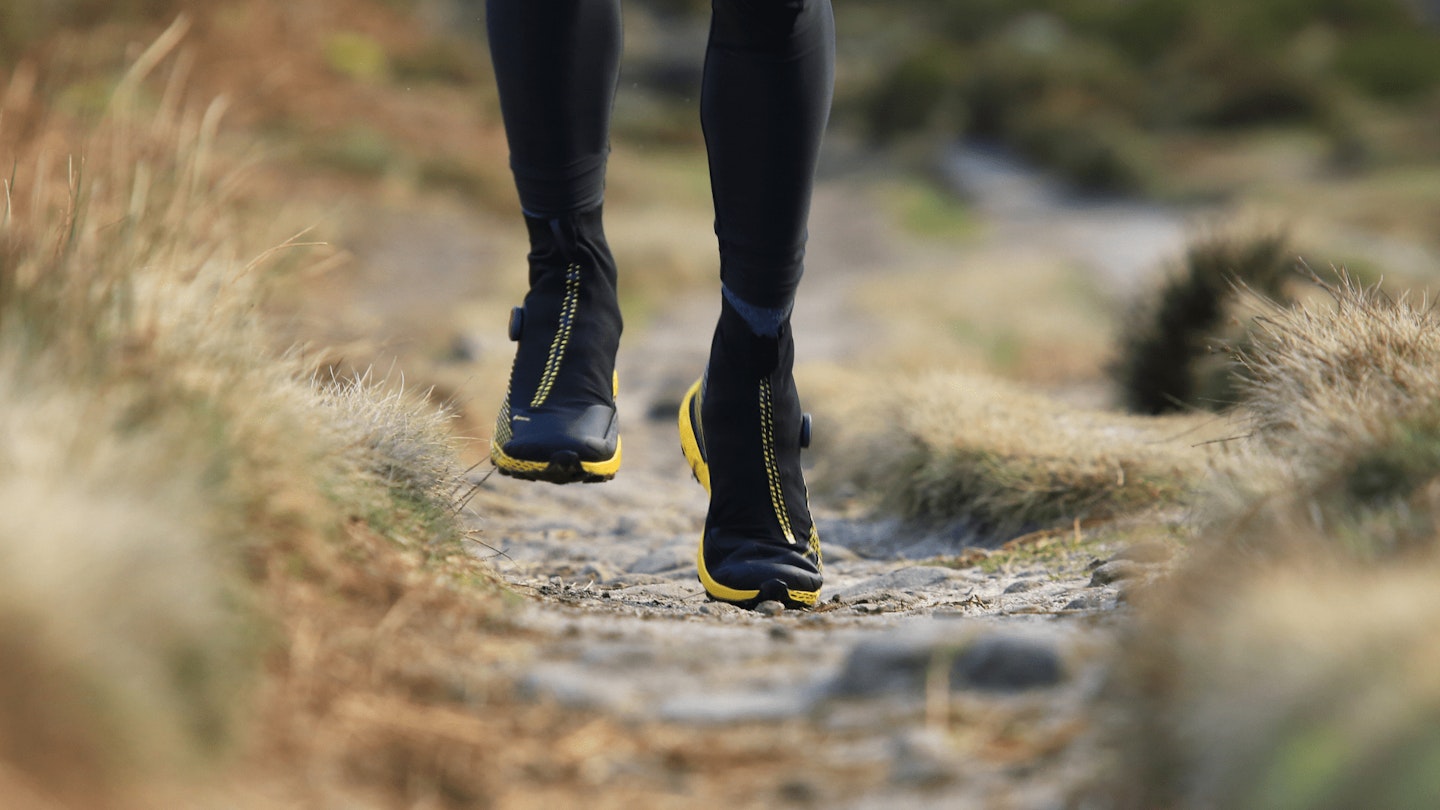
Stack height: The stack of a shoe refers the the thickness of the shoe in between the foot and the ground. For instance, a high stack with plenty of midsole cushioning could refer to a height of around 32mm. A lower stack height will have less cushioning and feel closer to barefoot running, providing that closer to the ground feel.
Midsole: EVA, PU, TPU or Pebax are the foams of choice for most brands. All offer softness and flexibility to different degrees.
Lacing: There’s the traditional lacing system of course, but the Salomon Quicklace and BOA (used by a variety of brands including La Sportiva and Adidas) systems offer superb stability on rough and steep terrain. Consider the surfaces you’ll be running. Tough descents and contouring lend themselves to this new fit system.
Lug length: Winter trail running shoe lugs go all the way up to 6mm and even beyond on occasion. Rubber, of course, wears quicker so longer lug length shoes need to stay strictly off-road.
Waterproofing: This can be controversial for some runners because it used to come at a cost regarding breathability and weight. However, thanks to advances in technology that isn’t the case now. It’s definitely worth looking at the materials used as well as drainage options.
How to adapt your trail running shoes for winter
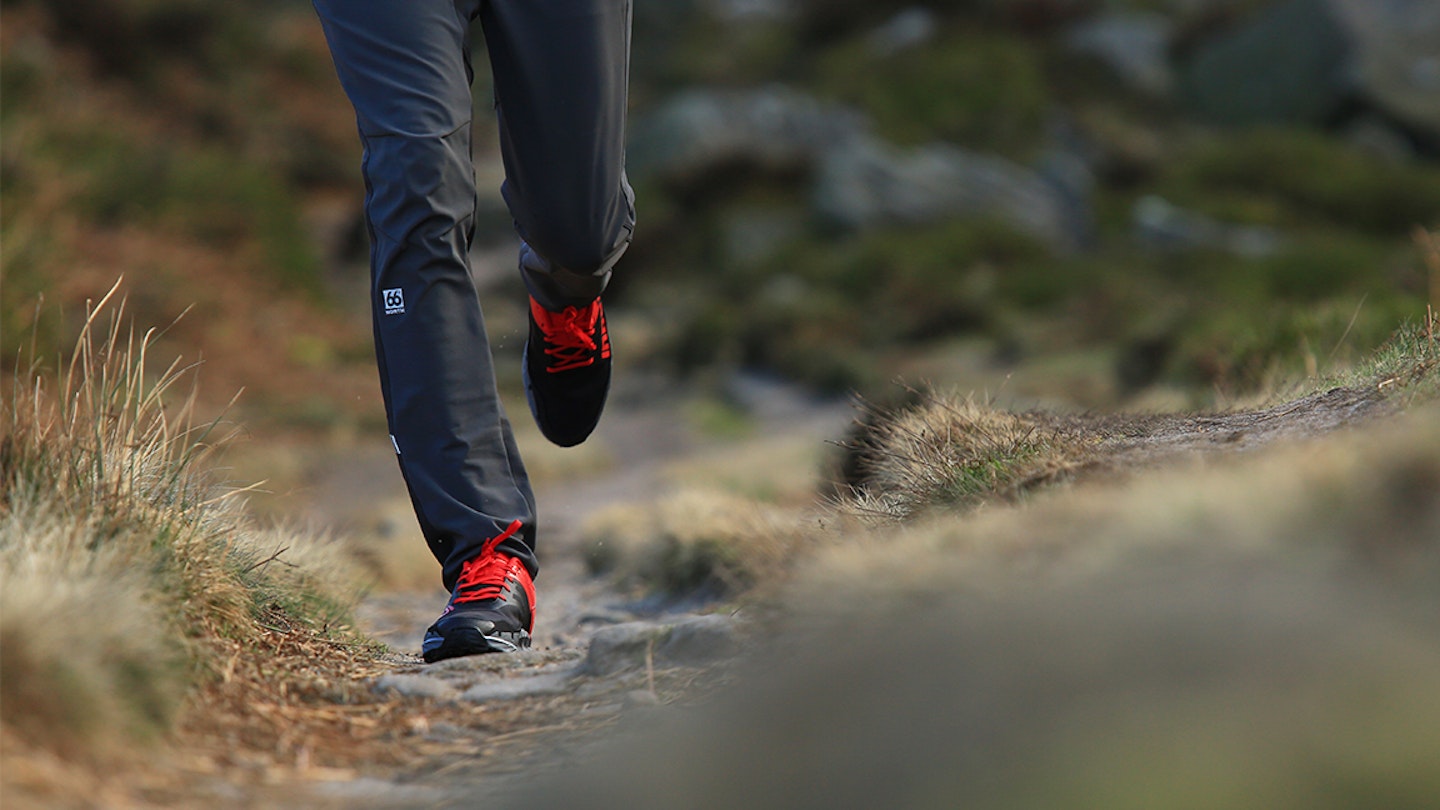
You may like running in winter but don’t necessarily want to go and buy a new pair of shoes. Fair enough. Here are some of our favourite accessories you can use to adapt your footwear.
Ice grippers and crampons
Best trail running shoe crampons
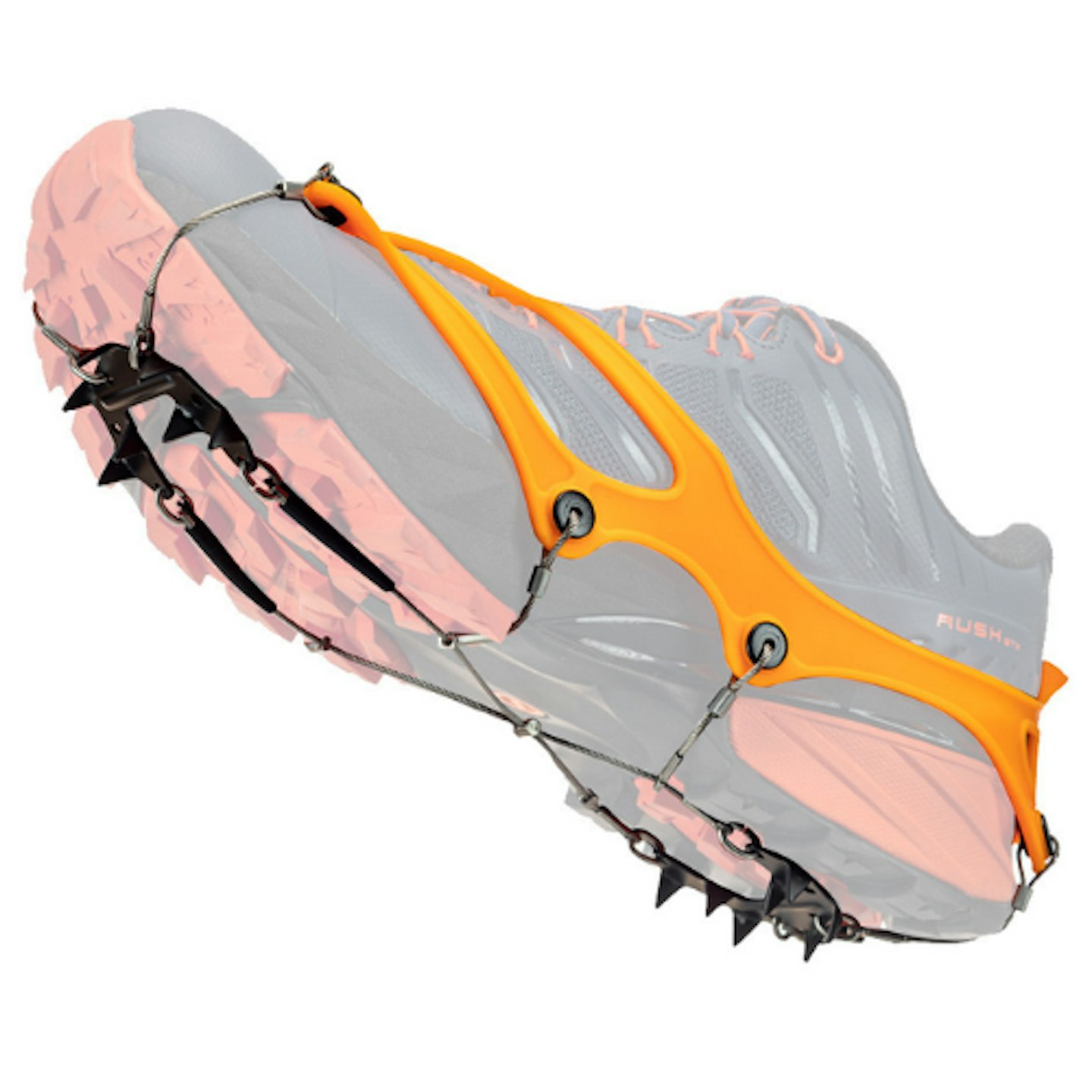
www.sportsshoes.com
Nortec claims these are the world's lightest quick-fit crampon, at 180g per pair. And while they're not cheap, they're still less expensive than a new pair of shoes.
The Trail 2.1 micro crampons are specifically for trail running shoes, not a general model for all off-road shoes. They provide 14 8mm steel spikes underfoot. The silicon brace and stainless steel spikes and wire are durable as well as effective.
We like how easy they are to fit too, just pull one end over the toe, then stretch the rear over the heel.
Pros
- Very lightweight
- Durable
- Best trail running shoe crampons
Cons
- Pricey
Best value trail running shoe crampons
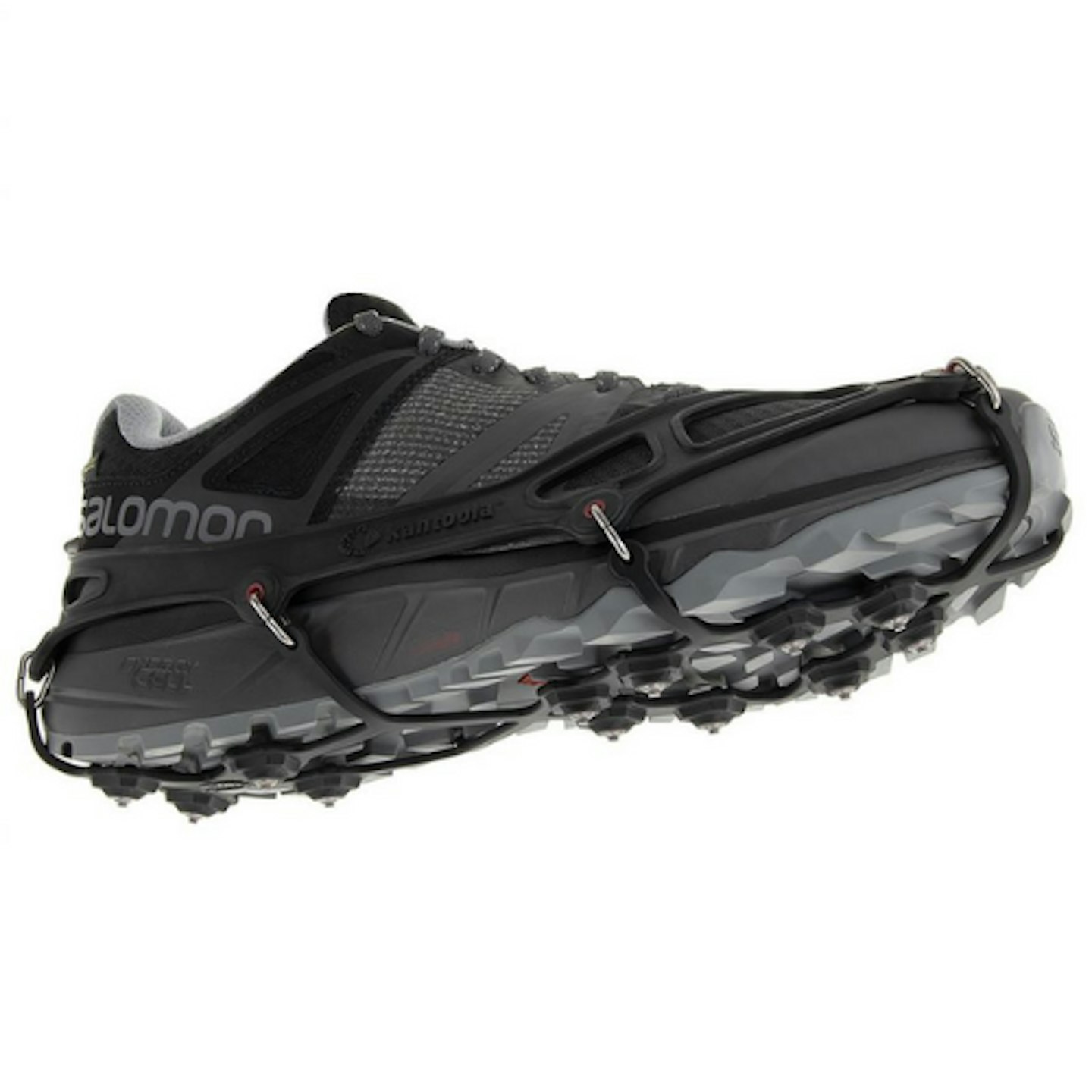
www.nevisport.com
Edging towards half the price of the Nortec 2.1, the EXOspikes are immediately appealing. They have a dozen tough tungsten carbide studs that, while not quite as grippy on ice as the Nortec 2.1 spikes, are a fantastic traction boost for standard trail running shoes.
Nortec's 2.1 crampons might be the lightest option, but the EXOspikes are pretty close, weighing 188g-230g depending on what size you get. The EXOspikes are equally easy to fit, and are hard to beat in terms of value.
Pros
- Good value
- Easy to put on
Cons
- Nortec 2.1 offer even better grip
Gaiters
Best trail running gaiters
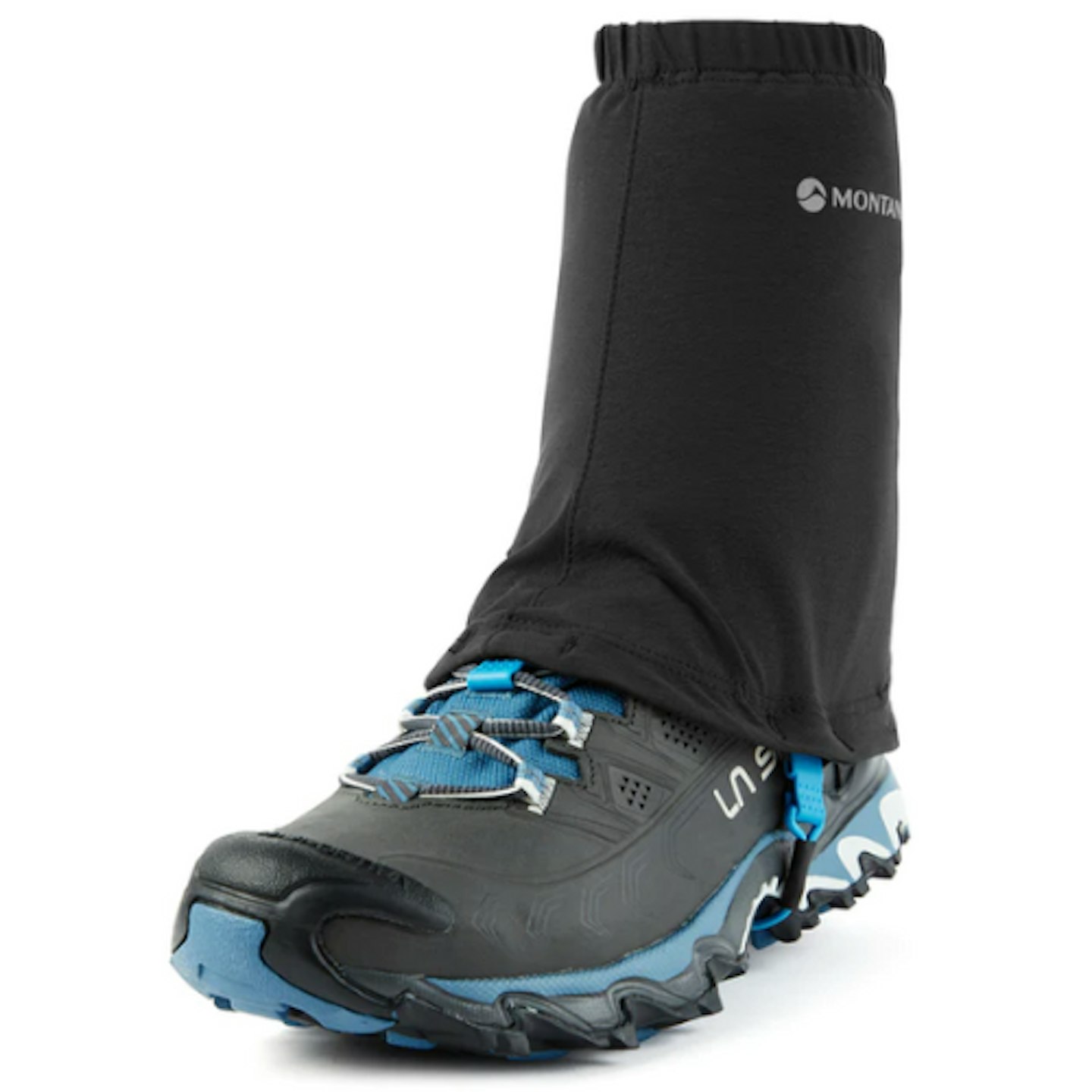
montane.com
Made with a stretchy nylon with a PFC-free durable water repellent (DWR) coating, these tall gaiters are great for alpine runs and muddy runs. It's very easy to fit and secure, thanks to an underfoot strap and front lace hook. A spare stap is also supplied. These are gaiters made to a really high standard, so stand as good value too.
Pros
- Very high protection
- PFC-free DWR
- Spare straps supplied
- Good value
Cons
- Maybe too tall for what you want
Best lower-cut gaiters
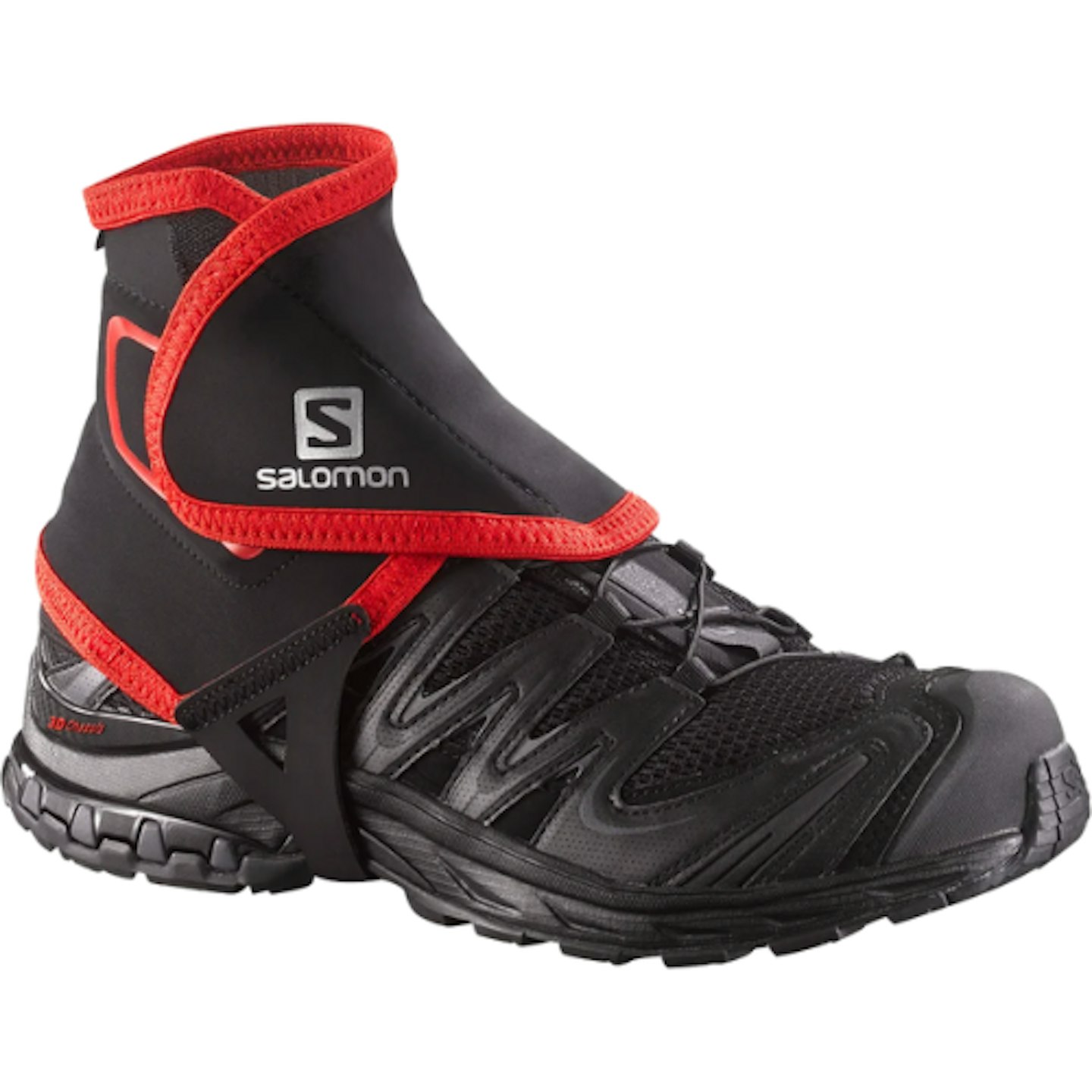
www.salomon.com
Despite being the higher cut of the two running gaiters Salomon offers, the Trail Gaiters High the ideal option for runners after a mid-cut gaiter. Like the Montane gaiters, these have an underfoot strap, but secure around the ankle with Velcro. It's a great system, and one that incorporates ankle protection too.
Pros
- Good design
- Ankle padding
Cons
- Pricey
Best value gaiters
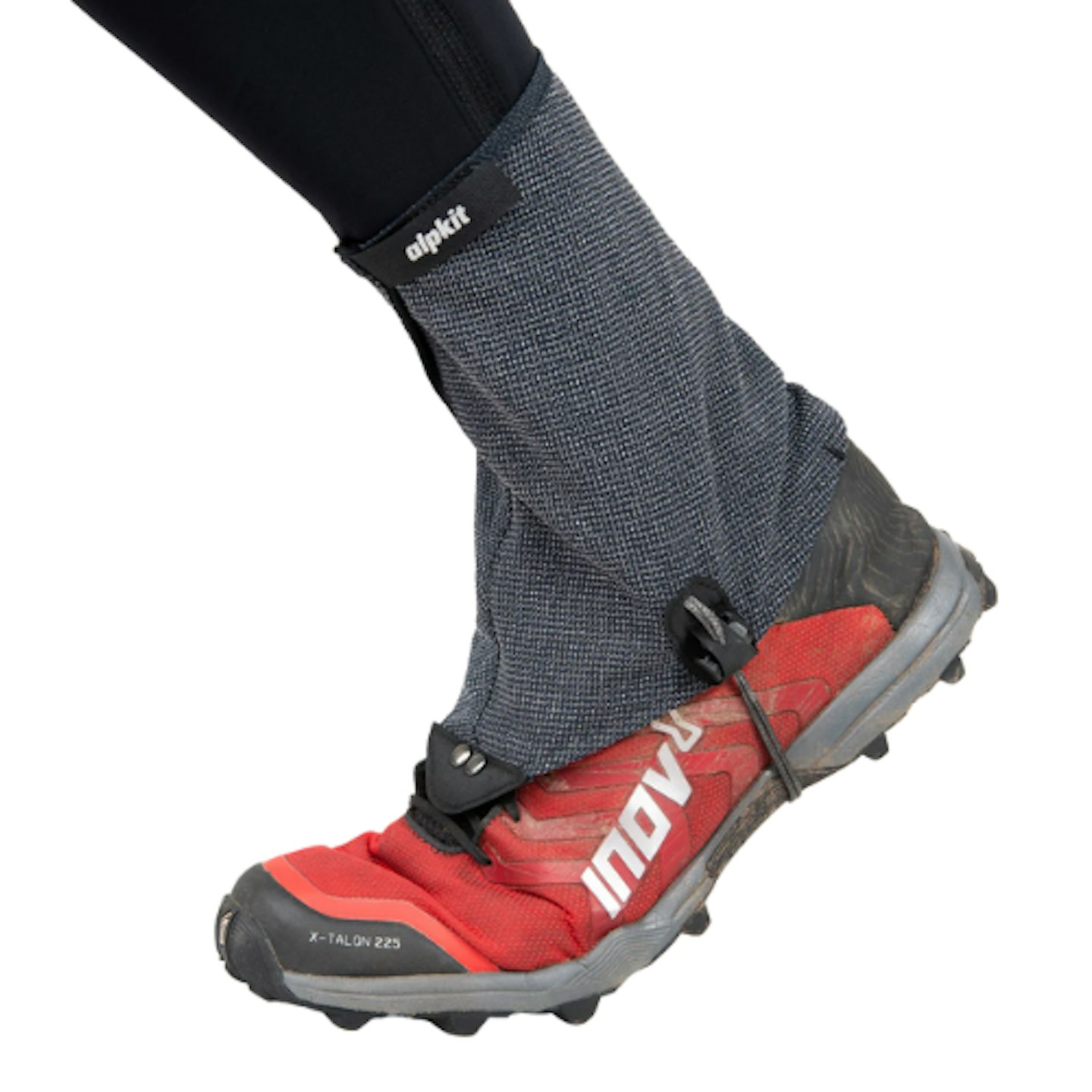
alpkit.com
In terms of value, it's hard to go past Alpkit's Kantju gaiters. They're made from stretchy, durable fabric and do a great job of keeping debris out of your shoes. Other options, such as Salomon's Trail Gaiters, do provide better ankle protection through, with the addition of light padding. But with the Kantju, we like the simple Velcro adjustment at the top, and tough steel lace hook.
Pros
- Great value
- Highly breathable
Cons
- Other gaiters offer more protection
Best waterproof running sock
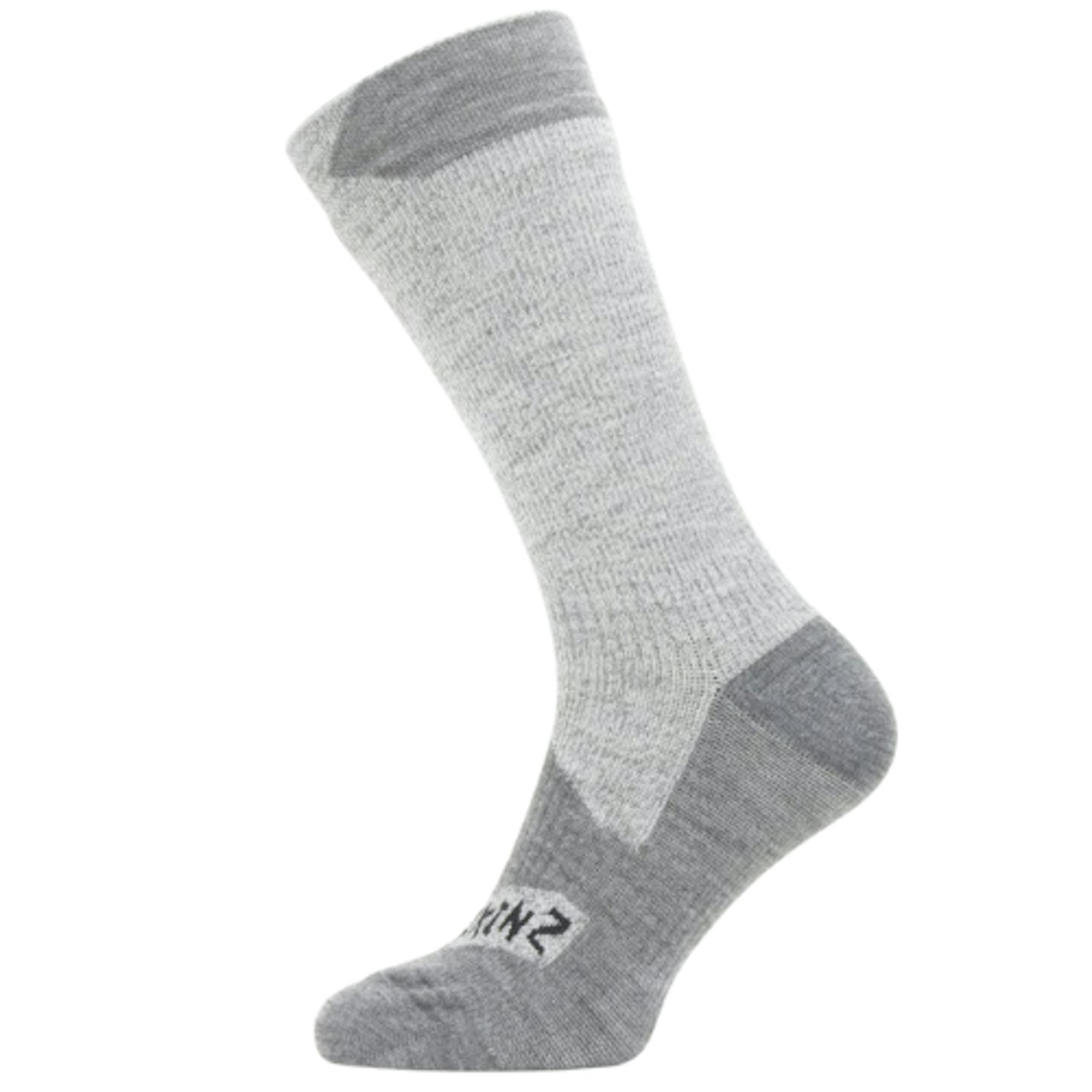
www.blacks.co.uk
Waterproof running shoes can't always keep your feet dry because they still have a big hole at the rear where water and muck can get in. Using a waterproof sock can solve the problem of wet feet. We've tested the Waterproof All Weather Mid Length Sock, and while it didn't make our roundup of the best running socks, it's unquestionably the best waterproof running sock.
The triple layer construction feels stiffer than regular socks. But it's breathability and waterproofing are remarkable.
Pros
- Actually waterproof
- Great alternative to gaiters
- Impressively breathable
Cons
- Slightly unusual feel
About the author
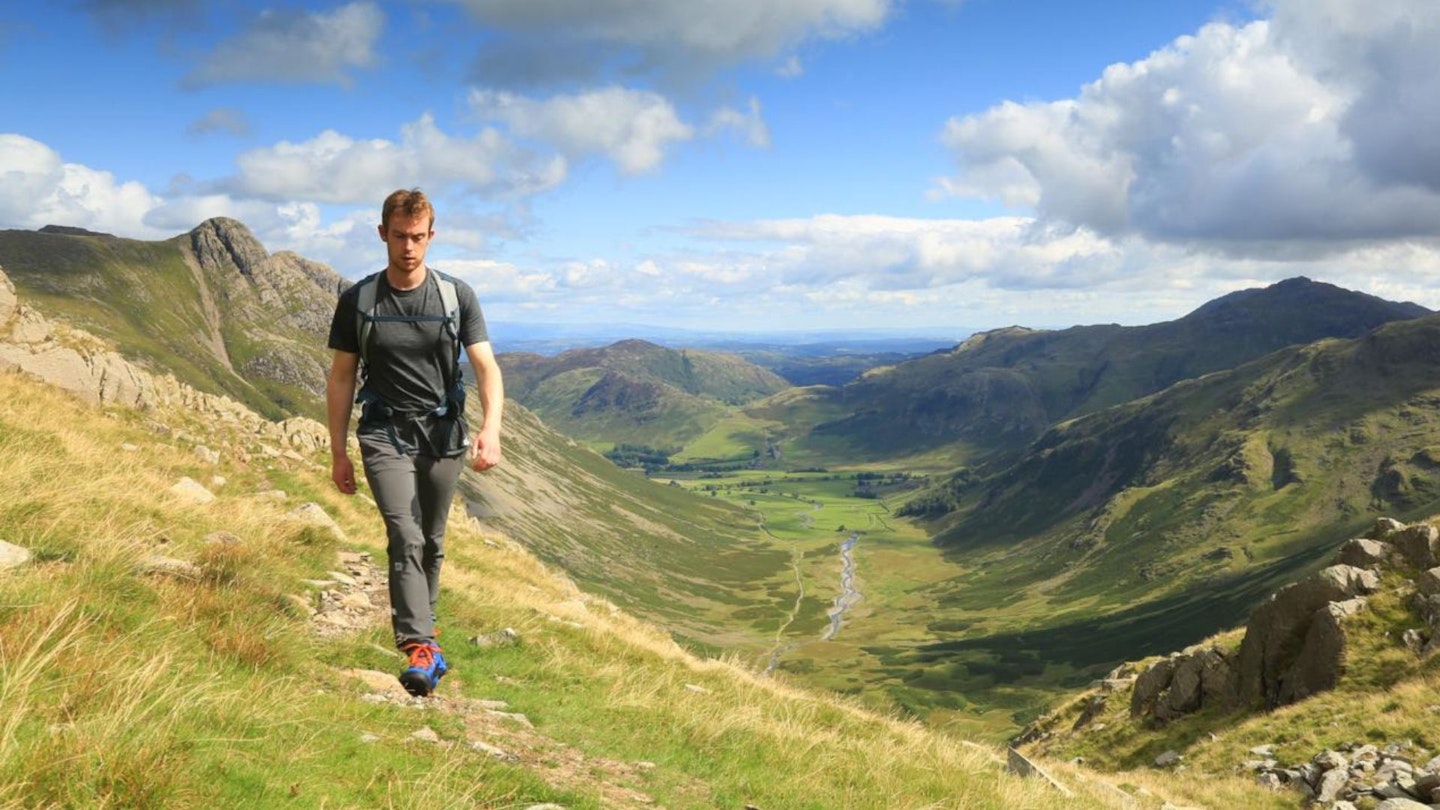
Chris Williams is our Senior Writer. He trained as a journalist in New Zealand and has been working for LFTO since 2021. Chris spent his childhood doing almost every outdoor sport under the sun. Eventually, those he pursued into his adult years were hiking, trail running, mountain biking and water skiing.
Though a writer, Chris likes to spend as little time behind a desk as possible, testing the latest outdoor gear and finding the best options for his fellow hikers and trail runners.

